
Ursula C. Basset is a PhD in Law. She is Director of Research Projects in Family Law and Chair holder in Family Law and Law of Successions. She has been actively involved in the same sex marriage debate in her country (2010), producing an alternative bill to the marriage reform. She was also a member to the Committee to reform the Argentine Civil Code in 2011-2. She was the first woman in her country to win the Accésit Prize of the National Academy of Jurisprudence (2012). She is member of the Directive Board of the International Academy for the Study of the Jurisprudence of the Family and member to the Executive Board of the International Society of Family Law. She has published more than one hundred articles and has written and coauthored several books.
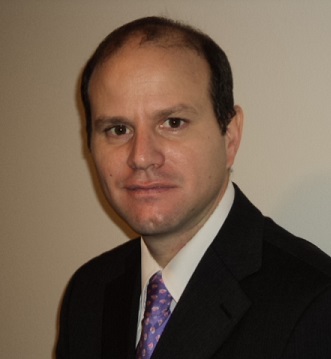
Octavio Lo Prete graduated from the University of Buenos Aires (UBA) in 1996. He received a Canon Law degree from the Universidad Católica Argentina (UCA) in 2001. He was a lawyer hired by the Ministry of Cults of the Nation in the years 1999-2001. He has been an adjunct professor of Canon Law and Public Ecclesiastical Law in the faculties of Law and of Canon Law (UCA) and interim associate professor Family Law and Inheritance (UBA). He is Secretary of the Ecclesiastical Law Institute - IDEC of the Faculty of Canon Law (UBA) and Licentiate of Canon Law (UCA). At present he is Professor of Canon Law & Church/State Relations (UBA), Founder & current President of the Argentine Council for Religious Freedom (CALIR), and Founder & current member of the Board of the Latin American Consortium for Religious Freedom (CLLR).
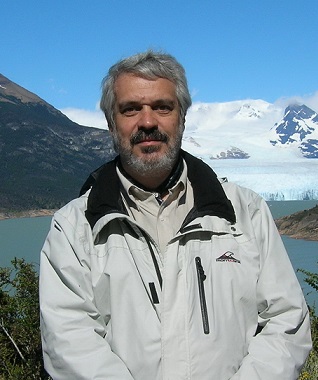
Professor Navarro Floria graduated in law with honors from the Pontificia Universidad Catòlica Argentina, where he now teaches Civil Law and Law and Religion. He has founded, together with other professors, the Latin American Consortium for Religious Freedom, of which he is past-President. He is also founder and board member of the Argentine Council for Religious Freedom (CALIR). He has been Chief Advisor at the Secretariat of Religious Affairs in the Argentine Federal Government. He is a member of the Academic Advisory Board of the International Center for Law and Religion Studies, Brigham Young University, of the National Committee “Justicia y Paz” at the National Conference of Catholic Bishops in Argentina, and of the ICLARS Steering Committee. He has published books and many academic articles in his field, at home and abroad.
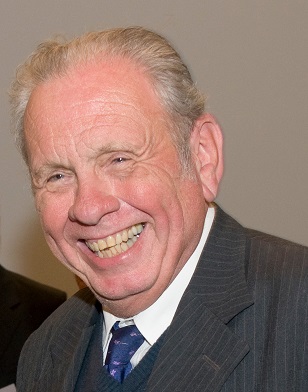
Norberto Padilla is an attorney who graduated from the University of Buenos Aires in 1970. He pursued a PhD during 1971-1972 at that university. He was an advisor to Dr. Fernando de la Rúa, Chairman of the Commission for Constitutional Affairs in the Argentina Senate, between 1983 and 1989. He was an advisor and Assistant-Secretary of the Secretariat of Religious Affairs between 1989 and 1998, and from December 1999 to December 2001 was Secretary for Religious Affairs at the Foreign Ministry, with the rank of ambassador.
Padilla began his career as a Professor of Constitutional Law at the Faculty of Law and Social Sciences at the University of Buenos Aires in 1972. He was Assistant Professor of Constitutional Law and currently teaches Advanced Constitutional Law. Since 1974 he has also spent time at the Faculty of Law and Political Science at the Catholic University of Argentina, where he reached the position of a full regular Professor of Constitutional Law in 1997 and was a Member of the Board from 1998 to 2002. He is a full member of the Argentine Association of Constitutional Law, of the Editorial Board of the review of culture Criterio, former President and Board Member of Fundación Navarro Viola, member of the Institute of Constitutional Politics of the National Academy of Moral and Political Sciences, honorary advisor of the Argentine Council for International Relations (CARI) and a life member of the Argentine Institute of Genealogical Sciences. He is a founding member and member of the Board of the Argentine Council for Religious Freedom (CALIR), and founding member and former member of the Board of the Latin American Consortium for Religious Freedom. Since 1972 he has been a co-worker for the Argentine Bishops Conference Commission for Ecumenism and Interreligious Dialogue, and has been appointed on three occasions by the Pontifical Council for the Promotion of Christian Unity to ecumenical and Catholic-Jewish conferences.
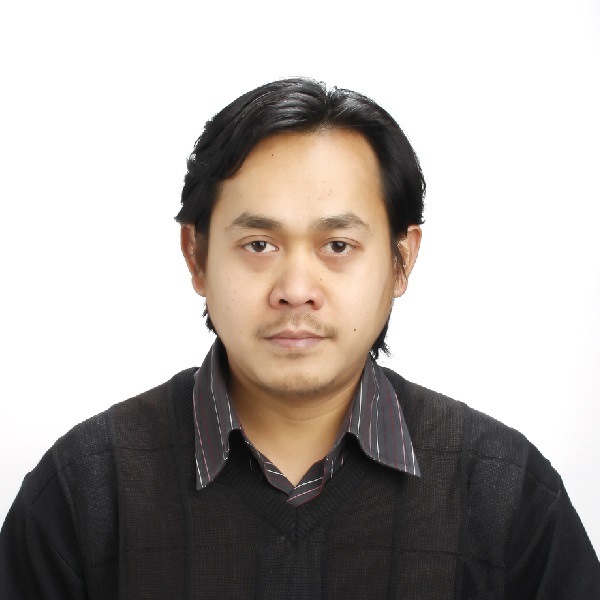
Supriyanto Abdi is a PhD Candidate at the Asia Institute, the University of Melbourne. His PhD thesis examines liberal Muslim intellectual discourse on religion-state relations and religious freedom in contemporary Indonesia. He completed his Master of Contemporary Asian Analysis at the University of Melbourne (2005) and his undergraduate study in Islamic Studies at the Islamic University of Indonesia (Universitas Islam Indonesia/UII) Yogyakarta (2000). His recent publications include “Islam and (Political) Liberalism in Indonesia: A Note on the Recent Debate”, Journal of Indonesian Islam, Vol. 3 No. 2 (December 2009) and “Islam, Religious Minority and the Challenge of the Blasphemy Law: A Look at Current Liberal Muslim Voices” in Religious Minorities in Muslim-Majority Localities in Southeast Asia: Areas of Toleration and Conflict, edited by Bernhard Platzdasch and Johan Saravanamuttu (Singapore: Institute for Southeast Asian Studies, forthcoming).
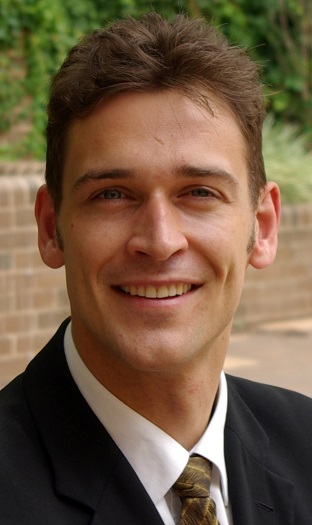
Greg Walsh was educated at the Australian National University where he completed a combined Bachelor of Laws/Science degree and a Graduate Diploma in Legal Practice. He completed a Master of Laws at the University of Sydney. He has lectured at the University of Western Sydney and the University of New South Wales. Greg has worked in various legal roles in Australia and overseas, including as a prosecutor and a medical negligence solicitor. Greg’s research interests include torts, medical law, human rights law, and the intersection between law and religion. He is a member of the Australasian Association of Bioethics and Health Law and the NSW Medico-Legal Liaison Committee.
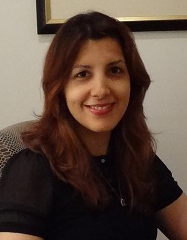
Katayoun Alidadi is a doctoral researcher at the Institute for Human Rights of the Katholieke Universiteit (KU) Leuven in Belgium. Her research and publications focus on human rights and non-discrimination in a comparative perspective, in particular as it regards employment and social rights, and on possible tensions that can arise between the freedom religion and non-discrimination (e.g. on the basis of sexual orientation). She holds an LLB from the KU Leuven and an LLM from Harvard Law School (Fulbright, Frank Boas and BAEF fellow). During 2010-2013 she was a project researcher in RELIGARE (Religious Diversity and Secular Models in Europe-Innovative Approaches to Law and Policy), a 7th Framework Programme financed by the European Commission. Previously, she has worked in a number of international law firms in Brussels, at Public Counsel Law Center in Los Angeles, and at the Belgian Centre for Equal Opportunities and Opposition to Racism. Recent publications include: A Test of Faith? Religious Diversity and Accommodation in the European Workplace (Ashgate, 2012, edited with Marie-Claire Foblets and Jogchum Vrielink); ‘Reasonable Accommodations for Religion and Belief: Adding Value to Article 9 ECHR and the European Union’s Anti-Discrimination Approach to Employment?’ 37 European Law Review 6 (2012) 693-715; ‘Out of sight, out of mind? Implications of routing religiously dressed employees away from front-office positions in Europe’, Quaderni di Diritto e Politica Ecclesiastica 1 (2013) 87-106.
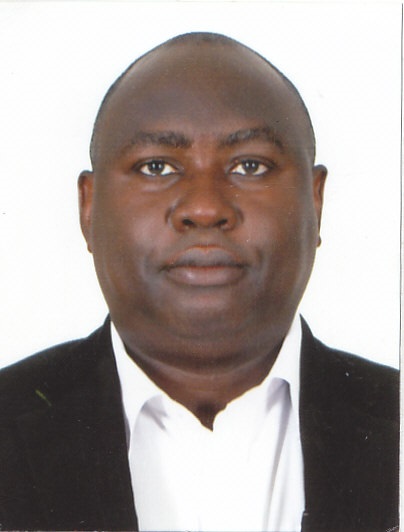
Enyinna Nwauche is Associate Professor of Law at the University of Botswana. His current research interest includes constitutional law in Africa; religion law and development; the intersection of human rights and intellectual property; and trade and culture. He has published widely in local and international peer reviewed journals and has held fellowship and visiting positions at the Max Planck Institute for Public International Law Heidelberg; the Max Planck Institute for Tax Competition and Intellectual Property Munich Germany; the AHRC Research Centre for IP; and IT Law University of Edinburgh Scotland and the South African Institute for Advanced Constitutional Public Human Rights and International Law (SAIFAC).
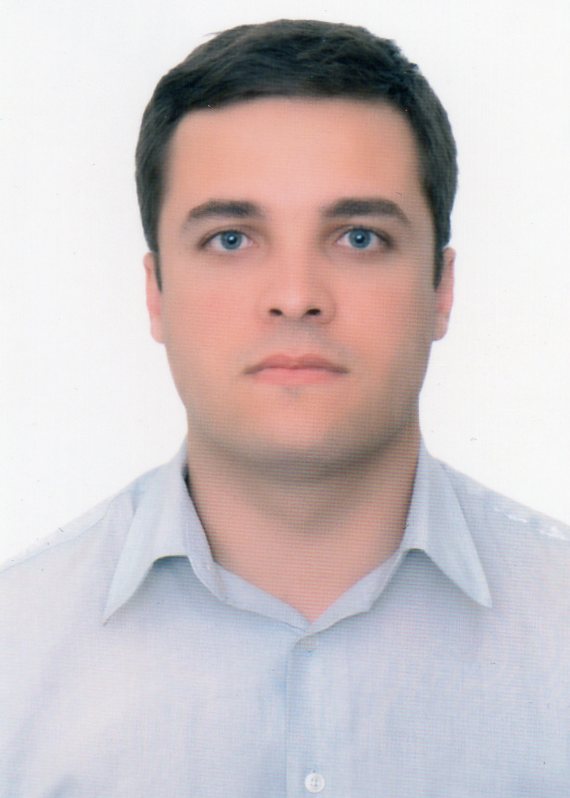
Rodrigo Alves earned an LLB and a Master’s degree in Public Law from the Federal University of Uberlandia, Brazil. He has also been awarded a specialist degree in Criminal Science by Gama Filho University, Brazil. He is a PhD Candidate at the University of Coimbra, Portugal. He teaches Constitutional Law at the Law School at the Federal University of Uberlândia. He concentrates his researches on Public Law and Fundamentals of Law. Mr. Alves also serves as a coordinator of the Law and Religion Research Group (http://www.direitoereligiao.org/). His work and articles have been published in national and international journals and events. Mr. Alves is a member of the International Consortium for Law and Religion Studies (ICLARS) and is licensed to practice law in Brazil.
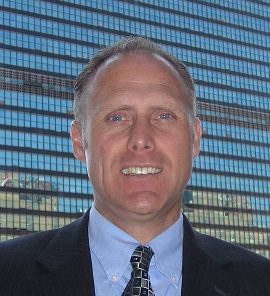
Barry W. Bussey was born and raised in Newfoundland, Canada. He holds degrees in theology (BA), law (LLB, LLM) and political science (MA). He served many years as in house counsel for the Seventh-day Adventist Church in Canada. For 2.5 years he represented the Seventh-day Adventist Church in public affairs in Washington, D.C., and at the U.N. in New York and Geneva. Since July 2011 he is working with Canadian Council of Christian Charities as V-P Legal Affairs.
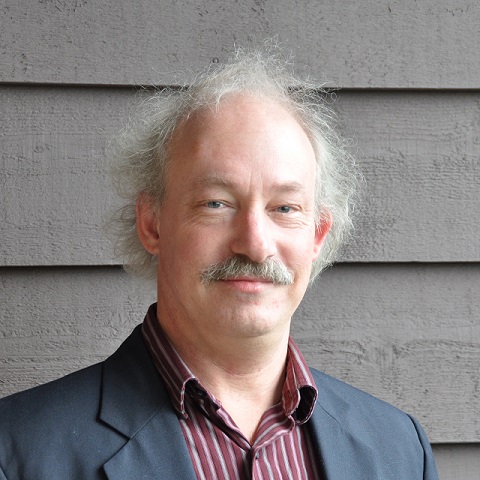
Toby Mendel is the Executive Director of the Centre for Law and Democracy, a Canada-based international human rights NGO that provides legal and capacity building expertise regarding foundational rights for democracy, including the right to information, freedom of expression, the right to participate and the rights to assembly and association. Prior to that he was for 12 years Senior Director for Law at ARTICLE 19, a human rights NGO focusing on freedom of expression and the right to information. He has provided peak level expertise on these rights to a wide range of actors including the World Bank, various UN and other intergovernmental bodies, and numerous governments and NGOs in countries all over the world. This includes law reform work in 2012-3 in Bhutan, Egypt, Morocco, Myanmar and Tunisia. Before joining ARTICLE 19, he worked as a senior human rights consultant with Oxfam Canada and as a human rights policy analyst at the Canadian International Development Agency (CIDA). He has published extensively on a range of freedom of expression, right to information, communication rights and refugee issues, including comparative legal and analytical studies on public service broadcasting, the right to information and broadcast policy.
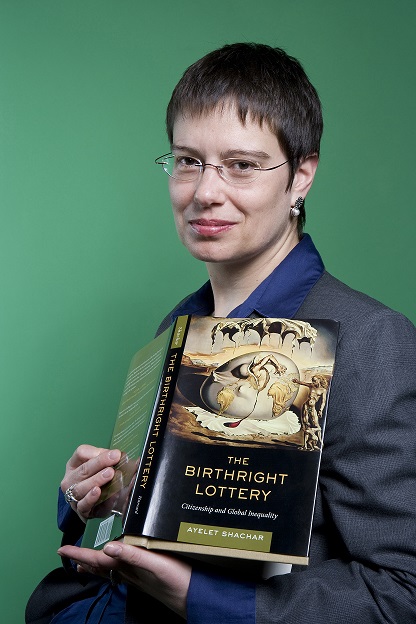
Ayelet Shachar is Professor of Law, Political Science, and Global Affairs at the University of Toronto, and holder of the Canada Research Chair in Citizenship and Multiculturalism. She has published and lectured widely on citizenship theory, immigration law, multiculturalism and women’s rights. Shachar is the author of Multicultural Jurisdictions: Cultural Differences and Women’s Rights (Cambridge University Press 2001), for which she won the Best First Book Award from the American Political Science Association Foundations of Political Theory Section; and The Birthright Lottery: Citizenship and Global Inequality (Harvard University Press 2009). Her work has inspired a new generation of thinking about how best to mitigate tensions between gender equality and religious diversity, and has also proved influential in public policy and legislative debates. It was cited, most recently, by England’s Archbishop of Canterbury and the Supreme Court of Canada.
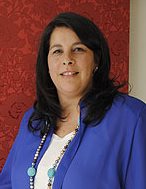
Ana María Celis Brunet is an Attorney at Law. She received her License and Doctoral degree in Canon Law at the Pontificia Università Gregoriana (Rome, Italy) with the dissertation on “La relevancia canónica del matrimonio civil a la luz de la Teoría general del Acto jurídico, contribución teórica a la experiencia jurídica chilena”. Professor Celis teaches Canon Law and Law and Religion at the Law Faculty of the Pontificia Universidad Católica de Chile, as well as post graduate courses in different programs. She is the Director of the Canon Law Department of her Faculty, and she is the director of the Centro de Libertad Religiosa - Derecho UC that started in 2005 as a center for studying Church-State matters and promoting religious freedom. From 2005 was the secretary of the Consorcio Latinoamericano de Libertad Religiosa, until recently, when she was elected as its President. She is Vice President of the International Consortium for Law and Religion Studies (ICLARS).
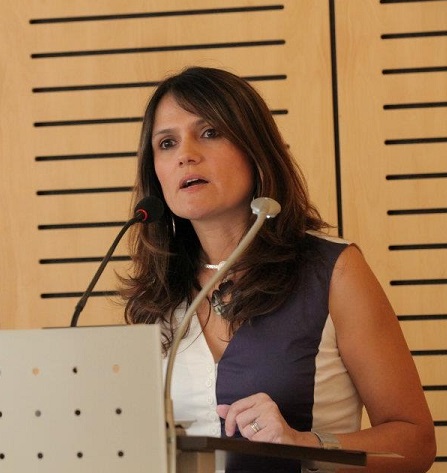
Carmen Dominguez is a graduate of the University of Concepción-Chile, Lawyer, with a Master’s in Comparative Law and Ph.D. in Law from the Complutense University of Madrid. She is Professor of Civil Law and Director of the Family Center of the Catholic University of Chile. Dr. Dominquez has published three books and numerous articles on civil liability, legal theory, Family Law, and Bioethics. She has developed several research projects and domestic and foreign sources. She teaches seminars lectures and conferences in Chile and abroad. She is a practicing lawyer and is referee of the Chamber of Commerce and Alternate Judge at the Court of Appeal of Santiago, Chile.
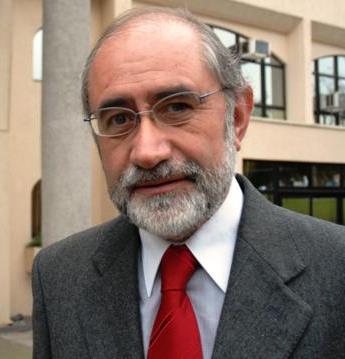
Jorge del Picó Rubio obtained a Juris Doctorate at the University of Zaragoza in Spain. He has
specialized, in academia and in practice, in both Civil Law and the Sciences of Law. He has taught Civil Law and Introduction to the Analysis of Law at the University of Talca in Chile where he became the Dean of the Faculty of Legal and Social Sciences, School of Law, in October 2007. Among his publications are Derecho Matrimonial Chileno (Chilean Marriage Law) and Derecho de la Libertad de Creencias (Right to the Freedom of Beliefs) (both in 2010) and many articles and book sections, including: “El Matrimonio Religioso en el Régimen Jurídico Chileno. El Sistema Matrimonial Consagrado por el Artículo 20 de la Ley N° 19.947” in Lus et Praxis, 2009; “Génesis y Regulación de Personas Jurídicas Derivadas, en el Marco Previsto por la Ley N° 19.638” in Estudios de Derecho Civil IV, 2009; “La Unión Conyugal Basada en la Diferencia de Sexo en la Ley N° 19.947 y los Proyectos de Reconocimiento Jurídico de las Uniones Homosexuales en Chile” in Estudios de Derecho Civil V, 2010; “La Ley de Constitución Jurídica de Entidades Religiosas y la Modelación del Derecho Eclesiástico del Estado de Chile” in Anuario de Derecho Eclesiástico del Estado XXVI, 2010; “Evolución y Actualidad de la Concepción de Familia. Una Apreciación de las Tendencias Dominantes a Partir de la Reforma del Derecho Matrimonial Chileno” in Lus et Praxis, 2011; “Concepciones Contemporáneas Influyentes en la Perspectiva Pública Sobre la Familia. Un Contrapunto Entre las Concepciones Comunitaristas y Liberales” in Estudios de Derecho Privado en Homenaje al Jurista René Abeliuk Manasevich, 2011; and “La Aptitud Mental Como Elemento Personal de Carácter Físico de la Validez Matrimonial” in Estudios de Derecho Civil VI, 2011.
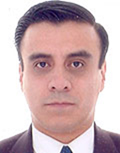
Sergio González graduated from the National University of Colombia in 1992 and received a Specialist degree in constitutional law at the same university in 2006. He holds a Baccalaureum in Canon Law from the Pontificia Universidad Javeriana in Bogotá (1994), and a Licentiatum in Canon Law from the same University (1995). He was awarded a Diploma in Applied Constitutional Law from the Universidad del Rosario in Bogotá (1996) and a Diploma in Social Doctrine of the Church by the Pontificia Universidad Javeriana in Bogotá (2002). Since 2000 he has been Professor in the Faculty of Theology of the Pontifical Javeriana University, and in charge of Theological Courses in the faculties, among others, of Law and Political Science. From 2001 he was Associate Professor of the Faculty of Law of the Universidad Militar Nueva Granada, in charge of the subject of Colombian Constitutional Law. His is a referee for the Journal Theologica Xaveriana. He is currently Director of the Continuing Education Program of the Faculty of Theology at the Pontificia Universidad Javeriana, and he is a consultant on constitutional and administrative matters, particularly in the area of public procurement, as well as a speaker at various national and international academic events.
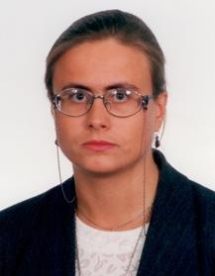
Merilin has taught international law and human rights (University of Tartu, University of Oxford). She has published several articles on various topics under the broader theme of law and religion in Estonia. She is currently in the process of developing these papers into a monograph which will be published by Kluwer Law International.
Merilin has also written on general issues of international law and human rights. With a team of scholars at the University of Tartu they published a textbook on international law and a book on legal drafting and the rule of law. She has edited a bench book for judges in Estonia. She has been advising Estonian government institutions on issues of law and religion and international law.
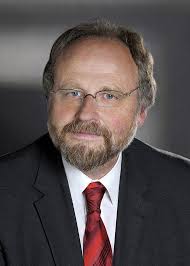
Professor Heiner Bielefeldt was appointed as United Nations Special Rapporteur for Freedom of Religion or Belief on 18 June 2010. Holding both a PhD in Philosophy from the University of Tübingen and a post-doctoral Habilitation Degree in Philosophy from the University of Bremen, following upon undergraduate studies in Philosophy and Catholic Theology at both institutions, Professor Bielefeldt teaches in the areas of political science, philosophy, law, and history. He has taught in faculties of law and philosophy at the universities of Tübingen, Mannheim, Heidelberg, Toronto, and Bielefeldt. From 2003-2009 he served as Director of the German Institute for Human Rights, and during 2008-2009 he was Chair of the Subcommittee on Accreditation of National Human Rights Institutions, International Coordinating Committee, Office of the United Nations High Commissioner for Human Rights. In 2009, he was appointed professor in the newly created Chair of Human Rights and Human Rights Policy at the University of Erlangen, which position he held at the time of his appointment as Special Rapporteur.
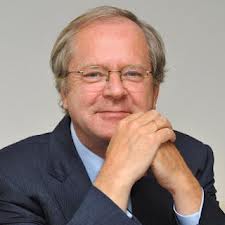
Prof. Dr. Gerhard Robbers received his doctoral degree in law in 1979 and obtained his final law degree in 1980 in Freiburg. From 1981-1984 he served as law clerk to the President of the German Federal Constitutional Court. In 1986 he obtained his habilitation in Law. From 1988 to 1989 he was Professor of Law at the University of Heidelberg. Since 1989 he has been Professor for Public Law at the University of Trier. He is Director of the Institute for European Constitutional Law and Director of the Institute for Legal Policy at Trier University. Since 2008, he serves in additional office as judge at the Constitutional Court of Rhineland-Palatinate. Since 2007, he is member of the Executive Committee of the German Evangelical Church Congress (Deutscher Evangelischer Kirchentag) and president of the 34th German Evangelical Church Congress. In 2003-2004, Gerhard Robbers was president of the European Consortium of Church and State Research, of which he is a member. He is also member of the Advisory Council for Freedom of Religion or Belief at ODIHR/OSCE. His main areas of work are the law on religion, constitutional law and international public law. He has served as an advisor to several national governments and international organizations.
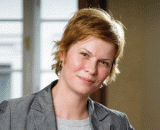
Renáta Uitz is Head of the Department of Legal Studies, and Chair of the Comparative Constitutional Law program. Her research and teaching cover subjects in comparative constitutional law in Europe and North America, transitional justice and human rights protection, with special emphasis on religious liberty and sexuality. She is the author of Constitutions, Courts and History (2004) and Freedom of Religion in European Constitutional and International Case Law (2007) and the editor of The Constitution in Private Relations: Expanding Constitutionalism (with Andras Sajo, 2005), Constitutional Topography: Values and Constitutions (with Andras Sajo, 2010), and most recently of Arguments that Work: Strategies, Contexts and Limits in Constitutional Litigation (2013).
Itai Apter holds an LLB 2006 (Haifa University) and an LLM in International Legal Studies 2008 (New York University). He worked as law clerk in the Israel Ministry of Foreign Affairs and for the past five years in the Israel Ministry of Justice, first as an Attorney-Adviser and since 2013 as the Director for International Affairs. His main focus areas and responsibilities include, inter-alia, international litigation, international immunities, international private law, and international arbitration. He frequently participates in Israeli delegations to bilateral negotiations, including with the Holy See, as well delegations to international forums such as the United Nations.
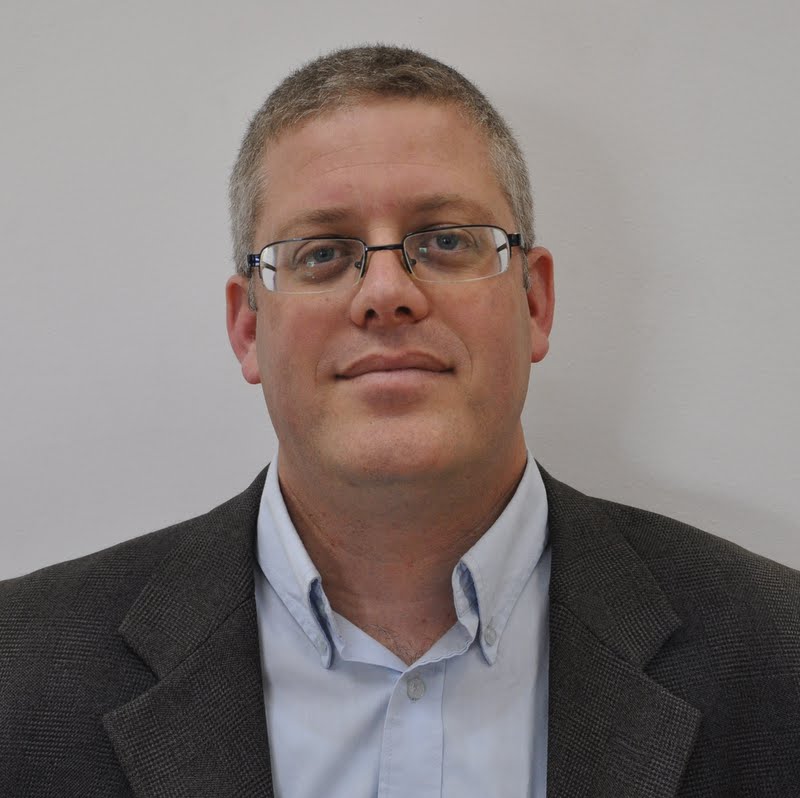
Rabbi Yaron Catane is currently the Legal Counsel of the Chief Rabbinate of Israel. He obtained a LLB and LLM degrees from the Hebrew University School of Law in Jerusalem and completed his studies for MA degree in EXMPP (Executive Masters in Public Policy) at the Hebrew University, in a special program for senior public workers in the Israeli government.
He worked in different positions in the public service: the Ministry of Finance, the Labor Court, the Prime Minister's Office and as the legal adviser to the Conversion Authority. He lectured in several law schools in various areas, such as Jewish Law and Labor Law. He was a visiting researcher at the Hauser Global Law School Program NYU School of Law, and participated in several international conferences around the world.
Yaron was ordained as a Rabbi by the Chief Rabbinate of Israel. He has seven children.
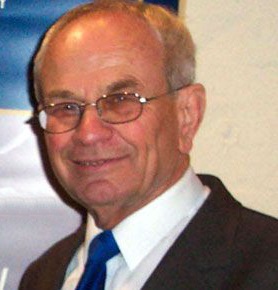
Asher Maoz is the Founding Dean of the Peres Academic Center Law School. He was for many years on the Faculty of Law at Tel-Aviv University, where he taught Constitutional Law, State and Religion, Freedom of Speech, Family Law, and Succession Law. Professor Maoz holds the degrees LLB and LLM, both summa cum laude (Hebrew University), M. Comp. L. (University of Chicago), J.S.D. (Tel-Aviv University) and Doctor Honoris Causa (Ovidius University, Romania). He is founding Editor-in-chief of Law, Society and Culture; former editor, Tel-Aviv University Law Review; member of the Steering Committee of ICLARS; member of the Scientific Board, Review Dionysina; member of the Academic Council of The International Academy for Jewish Leadership; member of the Academic Council, Shalem College, Jerusalem. Maoz was Chair, Law Commission for Journalists’ Privileges; served as academic advisor to the Knesset Constitution, Law and Justice Committee on adopting a constitution for the State of Israel; and serves on many other organizations. Has taught at several universities in the United States, Europe, and Australia, and is the author of numerous publications on the intersections of law and religion. He is a member of the Steering Committee of the International Consortium for Law and Religion Studies (ICLARS).
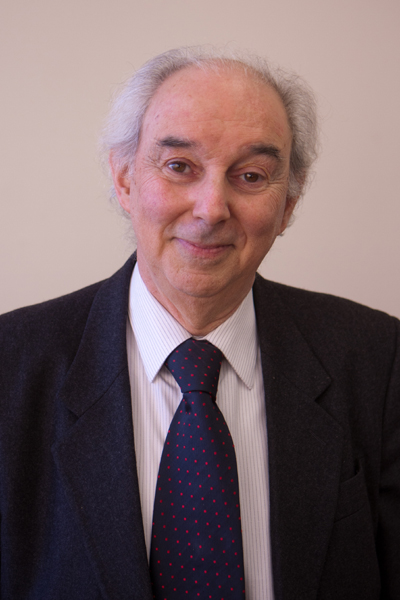
Silvio Ferrari, founder and honorary lifetime president of ICLARS (International Consortium for Law and Religion Studies), was visiting professor at the University of California (Berkeley, 1994 and 2001), the Institute for Advanced Legal Studies (London, 1998-99) and the Ecole Pratique des Hautes Etudes (Paris, Sorbonne, 2004), the University of Leuven (2000-2012). His publications in English include Law, Religion, Constitution: Freedom of Religion, Equal Treatment, and the Law, Ashgate 2013 (ed. with W. Cole Durham, Jr., Cristiana Cianitto, and Donlu Thayer); Religion in Public Spaces, Ashgate 2012 (ed. with S. Pastorelli); Law and Religion in the 21st Century, Ashgate 2010 (ed. with R. Cristofori); Law and Religion in Post-Communist Europe, Leuven, Peeters, 2003 (ed. with W. Cole Durham, Jr. and E. A. Sewell), Islam and European Legal Systems, Dartmouth, Ashgate, 2000 (ed. with A. Bradney). Professor Ferrari’s main fields of interest are law and religion in Europe, comparative law of religions (particularly Jewish law, Canon law, and Islamic law) and the Vatican policy in the Middle East. He is a member of the Advisory Council on Freedom of Religion and Belief of the OSCE-ODIHR, and member of the International Academy of Comparative Law. He is also one of the editors-in-chief of the Oxford Journal of Law and Religion and member of the Editorial Board of the Ecclesiastical Law Journal (Cambridge University Press). In 2012 Professor Ferrari was invited to deliver the Messenger Lectures at Cornell University, and he has received the Distinguished Service Award of the International Center for Law and Religion Studies of the J. Reuben Clark Law School (Brigham Young University, Provo, Utah).
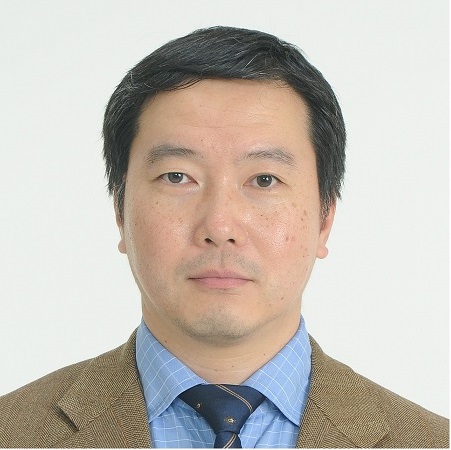
Eiichiro Takahata is a Professor of Constitutional Law at Nihon University, Japan, who received LLM from University of Georgia, USA in 1997. His specialties are constitutional law, comparative constitutional law, and law on religion. He engages in projects concerning State and Religion in Japan, freedom of conscience, religion and belief, and the
History of state-religion relations. He has published in Gerhard Robbers, ed., The Encyclopedia of World Constitutions, Facts on File (2007), Philip Kunig & Makoto Nagata, von., Persönlichkeitsschutz und Eigentumsfreiheit in Japan und Deutschland (Carl Heymanns 2009), and “Religious Accommodation in Japan”, 2007 Brigham Young University Law Review 729. He is a member of the Japanese Association of Public Law, the Japanese Association of Comparative Constitutional Law, and The Religious Law Research Association.
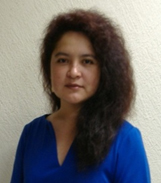
María Concepción Medina González received a Bachelor of Law degree from the Faculty of Law at the National Autonomous University of Mexico (1995), and a Bachelor of Pedagogy at the National Pedagogical University (1998). A scholarship from the Konrad Adenauer Foundation led to the Master in Law (2000) and the Doctorate in Law (2005), both at the University of Trier in Germany. She taught at the National Autonomous University of Mexico (1995-1999), collaborated on projects of the Institute for European Constitutional Law at the University of Trier (2000-2005), coordinated and conducted the first Seminar of Law of Religion in Mexico (2006), was Under Director and later Deputy Director of Norms of the General Directorate of Religious Associations of the Ministry of the Interior (2006-2008). Since 2008 she has served as a National Coordinator of the Regional System of Assessment and Development of Citizenship Competencies (SREDECC) for the Ministry of Education of Mexico. She works at the Electoral Tribunal of the Judicial Power of the Federation. She has published several articles in national and foreign journals, including “La personalidad jurídica de las asociaciones religiosas en México. Religión, Iglesia, Estado”, “El desarrollo histórico de las relaciones Iglesia-Estado en México”, and “La personalidad jurídica de las asociaciones religiosas en México. La reforma constitucional de 28 de enero de 1992”. She has also contributed to Las Libertades Religiosas. Derecho Eclesiástico (1997) and translated the article “Tendencias actuales del derecho religioso en Alemania” (2006) from German into Spanish. In 2005 she published her doctoral thesis “Das Religionsrecht in Mexiko” in German language. In 2007 she coordinated the Commemorative Work: “Una puerta abierta a la libertad religiosa (México a quince años de las reformas constitucionales en materia religiosa 1992-2007)”, in which she published the article “Tendencias actuales del derecho religioso mexicano”. Since 2009 she has written articles on topics of religion in public education, protection of cultural property of religious character and the religious issue and work under the Mexican Law of Religion.
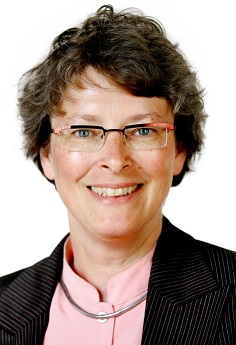
Sophie van Bijsterveld graduated in law at the University of Utrecht in 1983. She received a doctorate in Law at Tilburg University in 1988. Currently, she is professor of religion, state and society at the School of Humanities. She has published extensively in the fields of (international) human rights protection, religious liberty, constitutional law, and hybrid governance. Her books include: Overheid en godsdienst. Herijking van een onderlinge relatie [State and Religion: Regauging a Mutual Relationship], Second Edition, 2009; The Empty Throne: Democracy and the Rule of Law in Transition (2002) on the future of democracy and the rule of law and Godsdienstvrijheid in Europees perspectief [Religious liberty in European Perspective] (1998). Former professional activities include membership of the Council for Public Administration [Raad voor het openbaar bestuur] a statutory advisory body of the government and parliament. At the international level, Sophie was member of the Advisory Council of Freedom of Religion or Belief of ODIHR/OSCE. As of June 2007, Sophie is member of the Dutch Upper House of Parliament [Eerste Kamer der Staten-Generaal] for the Christian Democratic Party (CDA). She is also a Member of the Board of the Scientific Institute of the Christian Democratic Party in the Netherlands.
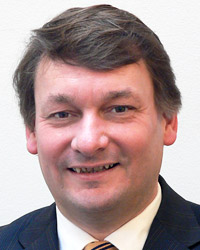
Hans-Martien ten Napel is an Associate Professor of Constitutional and Administrative Law at Leiden University in the Netherlands, where he is also Research Fellow of the Leiden Law School. Since 2008 he has also been a senior researcher at the School of Human Rights Research. Before his transfer to the Law Faculty, he taught in the Department of Political Science and was a Post-Doctoral Fellow at the Minda de Gunzburg Center for European Studies at Harvard University. He teaches the popular Bachelor of Laws Elective Course on Dutch parliamentary democracy and a newly developed Master Elective Course on Comparative Constitutional Law and serves as a coach on the extracurricular Leiden Leadership Programme. He conducts his research within the framework of the sub-research programs ‘Trias Europea: The significance of the constitutional framework of the Lisbon Treaty for the institutional balance of governmental powers in the Netherlands-EU relationship and among EU institutions’ and ‘The protection of fundamental rights in an integrating Europe’. In addition, he is involved in the Leiden University Research Profile Area ‘Political Legitimacy: Institutions and Identities’. In 2012 he co-directed a comparative study of the legislative processes in EU countries, commissioned by the Dutch Ministry of Security and Justice. He is widely published, and his work has recently appeared in Ars Aequi, European Constitutional Law Review, European Public Law, Muslim World Journal of Human Rights, Nederlands Juristenblad, the Oxford Journal of Law and Religion, and Tijdschrift voor Constitutioneel Recht. In 2012 he presented papers at Princeton Theological Seminary and Harvard Law School. Earlier this year he was appointed part-time Chair of the newly formed Faculty Board of Examiners.
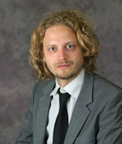
Jeroen Temperman is assistant professor of public international law at Erasmus University Rotterdam, lecturing international human rights law. In 2010 he was appointed EUR-fellow, enabling him to carry out his 4-year research project entitled “The Prohibition of Advocacy of Religious Hatred in International Law”. He is also the editor-in-chief of Religion & Human Rights: An International Journal. He has authored and edited several books on international human rights law, including: State–Religion Relationships and Human Rights Law (Leiden/Boston: Martinus Nijhoff Publishers 2010); Human Rights, co-authored with Kristin Henrard (The Hague: Boom Juridische Uitgevers 2011, 199 pp); a book on socio-economic rights within the European Union, co-authored with Rob Buitenweg en Kathalijne Buitenweg (forthcoming 2013); and (ed.) The Lautsi Papers: Multidisciplinary Reflections on Religious Symbols in the Public School Classroom (Leiden/Boston: Brill/Martinus Nijhoff Publishers 2012).
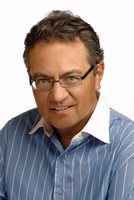
Rex Ahdar LLB (Hons), LLM (Canterbury), PhD (Otago) is a Professor in the Faculty of Law at the University of Otago, where he has taught since 1985. He has been a Fulbright Senior Research Scholar at Boalt Hall School of Law, UC Berkeley, and a Visiting Scholar at the Department of Private Law, Edinburgh University and at Emory University Center for Law and Religion. He is the editor of God and Government: The New Zealand Experience (Otago University Press, 2000) (with John Stenhouse), Law and Religion (Ashgate 2000) and Shari’a in the West (Oxford University Press 2010) (with Nicholas Aroney), and the author of Worlds Colliding: Conservative Christians and the Law (Ashgate 2001) and Religious Freedom in the Liberal State 2nd ed (Oxford University Press 2013) (with Ian Leigh). His research interests include religious freedom, church-state relations, and antitrust law.
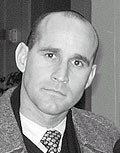
José Antonio Calvi is Professor of Commercial Law and Specialist in Ecclesiastical Law at Universidad Católica Sedes Sapientiae, 1994 to present. He received a law degree from the Pontificia Universidad Católica del Péru and has been a partner of the Law Firm Zarak - Calvi - Manrique and Lawyers, a member of the Ecclesiastical Law Institute of Peru since its founding in 1994, and was Permanent Lawyer for the Peruvian Episcopal Conference from 1994 to 1998.
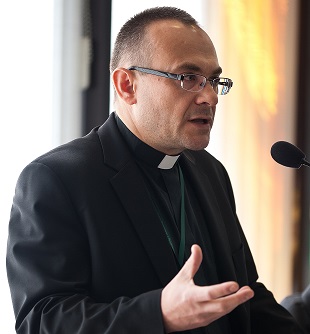
Rev. Prof. Piotr Stanisz is a university professor, president of the Department of Law on Religion, and dean of the Faculty of Law, Canon Law and Administration of the John Paul II Catholic University of Lublin, Poland. His major interests are religious freedom (especially issues connected with religious symbols), status of clergy, church-state relations in Poland, Italy and other European countries (especially church-state agreements and financing of religious organizations) and religious issues in the law of the European Union.
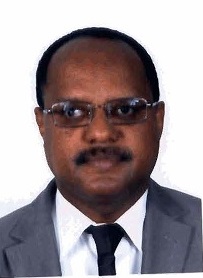
Dr. Mohamed Saeed M. Eltayeb is a human rights lawyer, scholar and consultant. He holds a Bachelor of Laws from the University of Khartoum, two post-graduate Diplomas in international relations and international law (University of Khartoum and Institute of Social Studies, The Hague) and two Masters Degrees in international relations and international law from the University of Amsterdam and Lund University (Sweden) respectively. He obtained his PhD in international human rights law from Utrecht University (The Netherlands). Dr. Eltayeb has worked, inter alia, at the Netherlands Institute for Human Rights (SIM), International Commission of Jurists (ICJ), Faculty of Law of the University of Khartoum and the Institute for Women, Gender and Development Studies of the Ahfad University (Sudan). He currently works as a legal expert for the Bureau of Human Rights of the Qatari Ministry of Foreign Affairs. Dr. Eltayeb has also served as a visiting researcher at several institutes in Europe and USA, including the Swiss Institute of Comparative Law of the University of Lausanne, the Human Rights Centre at Essex University, the Law and Religion Program at Emory University School of Law, the Islamic Legal Studies Program at Harvard Law School and Raoul Wallenberg Institute of Human Rights and Humanitarian Law at Lund University. His most recent publications include: Training Manual on Constitutional Analysis and Defining Fundamental Constitutional Principles and Terminologies, Ahfad University for Women, January 2013 [with Tahani Yahia and Mohamed Abdelsalam, in Arabic]; “The Limitations on Critical Thinking on Religious Issues under Article 20 of ICCPR and its Relation to Freedom of Expression”, 5 Religion and Human Rights Journal (2010); “The Prohibition of Incitement to National, Racial or Religious Hatred: The Case of West Asian Arab Countries”, 7 Religion and Human Rights Journal (2012); and “The Qatari National Human Rights Committee: A Search for Evaluation”, published in Focus [Newsletter of the Asia-Pacific Human Rights Center (HURIGHTS OSAKA)], Volume 47, March 2007.
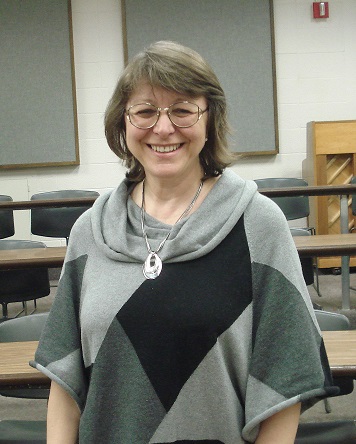
Professor Elena Miroshnikova has taught for 30 years at the university level. She now works at Tula State Leo Tolstoy Pedagogical University, Russia. She is a member of the International Consortium for Law and Religion Studies (ICLARS) and an Expert of Human Rights Without Frontiers (HRWF, Brussels). She is a Member of the Board of the Russian Association of Scholars on Religious Studies (Moscow) and a Member of the State Expert Council on Religious Studies (Tula). She is the author of The Cooperation Model in State-Church Relations (Lambert, 2011), and editor, along with Derek Davis, of The Routledge International Handbook of Religious Education, which appeared in 2012.
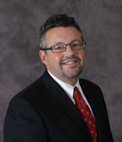
Iain T. Benson is a lawyer, academic and published poet. He holds degrees from Queen’s University (literature), the University of Cambridge (law) and University of Windsor (law). He is called to the Ontario and British Columbia Bars and will receive his PhD (constitutional law) from the University of the Witwatersrand, Johannesburg (2013). He is a Professor Extraordinary of Law in the Department of Constitutional Law and Philosophy of Law, Faculty of Law, the University of the Free State (2009, ongoing).
He is a Research Associate for the South African Institute for Advanced Constitutional, Public, Human Rights and International Law (Johannesburg) and a Senior Fellow of the Chester Ronning Centre for the Study of Religion and Public Life, University of Alberta, Canada. He is on the Board of the Global Centre for Pluralism, a joint project of the Government of Canada and the Aga Khan Development Network, based in Ottawa, Canada. He has appeared before all levels of Court in Canada in constitutional and human rights cases with a focus on religious liberty issues and his legal articles have been cited with approval by the Supreme Court of Canada and the Constitutional Court of South Africa. He was one of the principal drafters of the South African Charter of Religious Rights and Freedoms, signed by all major religions in South Africa (2010). He has consulted to the governments of Ireland and Canada and has published many book chapters and articles. A Monograph, Living Together With Disagreement, was published in Australia (Connor Court 2012). He lives in France but lectures internationally.
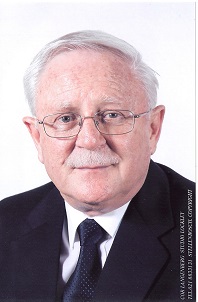
Prof. Pieter Coertzen obtained seven degrees: BA, BA Hons, and MA in Philosophy at the former Pothefstroom University for Christian Higher Education (currently North West University), and Bachelor of Theology, Licentiate in Theology, Master of Theology in Ecclesiology, and Doctors Degree in Theology (Ecclesiology) at the University of Stellenbosch. From 1970 to 1974 he was the parish minister of the Dutch Reformed Church in Dundee, Natal and from 1974 through 1976 he was student minister at the Dutch Reformed Church Potchefstroom-North. He was called as Senior Lecturer in Ecclesiology at the Faculty of Theology (University of Stellenbosch) in 1977. In 1988 he became professor, and from 1995-1997 he was the Dean of the Faculty as well as associated minister of the Dutch Reformed Church Franschhoek (1995-2008). From 1991-1999 Professor Coertzen was actuarius (Church Law Advisor) of the Dutch Reformed Church in South Africa (Western and Southern Cape) and from 1994-2004 actuarius of the General Synod of the Dutch Reformed Church. Since the early eighties he also served in the Church Law Committees of the Synod of the Dutch Reformed Church in South Africa (Western and Southern Cape) and of the General Synod.
Professor Coertzen retired in 2004 as a lecturer at the Faculty of Theology but was immediately appointed as Extraordinary Professor in Comparative Church Law at the Catholic University of Louvain and at the Faculty of Theology of the University of Stellenbosch. Still very active as scholar and theologian, he has published dozens of articles and 14 books; he is also co-author or editor of 26 publications. His two main book publications are Die Hugenote van Suid-Afrika 1688–1988 and Ordelik en Gepas ‘n Teologiese verantwoording van die Orde vir en in die Kerk. Professor Coertzen was chairman both of the Huguenot Memorial Museum in Franschhoek and of the organizing committee for the Seminary’s 150-year celebrations in 2009, and also the editor of the festschrift from the Seminary. He is chairman of a committee that is preparing a Charter of Religious Rights for South Africa for possible adoption by the Parliament.
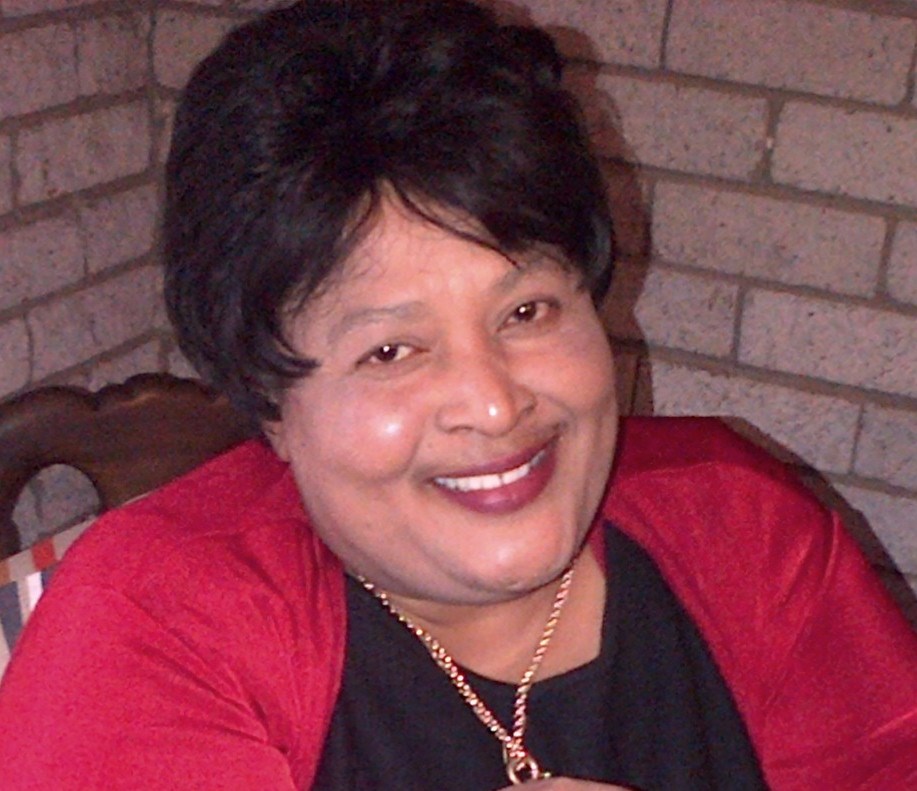
Dr. Mary Anne Plaatjies van Huffel – BTh, MTh, DTh – was appointed as Senior Lecturer in Ecclesiology (Church Polity) at the Faculty of Theology, Stellenbosch University, in April 2010. Licensed as a candidate for the ministry in 1991, she was ordained as the first female minister of the Dutch Reformed family. She has served as minister in the Uniting Reformed Church in Southern Africa (URCSA), served on the decision making structures of the URCSA respectively as actuarius (church law expert) of the Regional Synod Cape and as vice moderator of the General Synod. She made history in October 2012 when she was elected as moderator of URCSA, the first woman to hold such a position in one of the large Southern African churches. Among her publications are “Patriarchy as Empire: A Theological Reflection”, Studia Historicae Ecclesiasticae (December 2011); “Control, Secede, Vested Rights and Ecclesiastical Property”, Studia Historicae Ecclesiasticae (September 2011); and “The Institutionalization of Christian Women’s Organisations: From Docile Recipients to Agents of Change,” Studia Historicae Ecclesiasticae (May 2011).
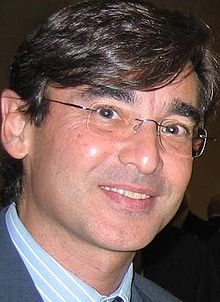
Javier Martínez-Torrón is Doctor utroque iure (Doctor of Law and of Canon Law). He is Professor of Law at Complutense University (Madrid). He obtained his first chair at the University of Granada (1993), where he founded and directed the Seminar of Comparative Law. Prof. Martínez-Torrón has been a visiting professor and researcher at Universities in Europe, North America, and Latin America. He is an Associate member of the Spanish Royal Academy of Jurisprudence and Legislation, and Vice-President of its Section of Canon Law and Church-State Relations. He is currently a member of the Advisory Commission on Religious Freedom at the Spanish Ministry of Justice. He is also a member of the International Academy of Comparative Law, the International Academy for Freedom of Religion and Belief, and of the International Advisory Council of the both the Oslo Coalition on Freedom of Religion and Belief and the International Center for Law and Religion Studies. In 1995, he helped found the first Spanish legal periodical specifically focused on religious and legal issues of the State (Anuario de Derecho Eclesiástico del Estado, 1995). He is one of the founders and the Deputy Director of the Revista General de Derecho Canónico y Derecho Eclesiástico del Estado (2003). In the field of religion, his research has focused especially on conscientious objection, the international protection of religious freedom, the legal status of religious minorities in Spain, and the historical influence of canon law on the Anglo-American legal tradition. The results of his research have been published in Spanish, English, Italian, French, Russian, and Lithuanian.
Augustín Motilla de la Calle is Professor of Ecclesiastical Law at the University Carlos III of Madrid. He was a member, from November 1996 to October 2004, of the Advisory Commission on Religious Freedom of the Ministry of Justice of Spain, as an expert in matters of religious freedom. In recent years he has conducted several research projects on the legal status of Muslims in Spain. Among other Scientific Committees, he is a member of the “European Consortium for Church and State Research” and Deputy Director of the Yearbook of Ecclesiastical Law. His most recent publications include: Régimen jurídico de los bienes histórico-artísticos de la Iglesia católica, EUROLEX, Madrid 1995; El concepto de confesión religiosa en el Derecho español. Práctica administrativa y doctrina jurisprudencial, Centro de Estudios Políticos y Constitucionales, Madrid 1999; Derecho de Familia Islámico. Los problemas de adaptación al Derecho español, Editorial Colex, Madrid 2002 (in collaboration with Paloma Lorenzo); Los musulmanes en España; Libertad religiosa e identidad cultural, Editorial Trotta, Madrid 2004 (in collaboration with María José Ciáurriz, David García-Pardo, Paloma Lorenzo y Jaime Rossell); and Islam y Derechos Humanos, Editorial Trotta, Madrid 2006 (in collaboration with María José Ciáurriz, David García-Pardo, Paloma Lorenzo y Jaime Rossell).
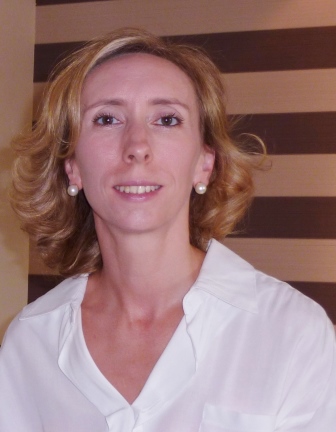
María José Valero received a Bachelor of Law (Universidad Pontificia de Comillas ICAI-ICADE) in 1998. She was a practicing lawyer in the Litigation Department of the firm Cuatrecasas (Madrid) between 2002 and 2007. Since 2010, she is a PhD Candidate working in the Department of Law and Religion at the Law Faculty of the Complutense University of Madrid. Specializing in educational rights and in the collective religious freedom of religious communities, she is the author of several published papers on homeschooling and faith-schools in Europe, and has participated as a speaker and discussant in various national and international conferences. She currently focuses her research in the relationship between the autonomy of religious groups and the right to non-discrimination in the workplace. She is a lecturer for Law and Religion at the Villanueva University Centre in Madrid.
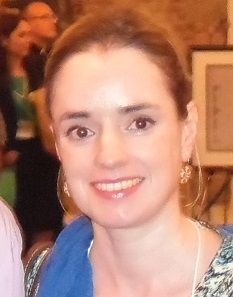
Rebeca Vázquez Gómez holds a PhD in Law and received the PhD Extraordinary Award from the University of A Coruña (Spain) in 2013. She was a researcher on law and religion at the same institution for several years. Rebeca is the author of El uso de símbolos como ejercicio del derecho de libertad religiosa en el ordenamiento jurídico italiano (Aranzadi – Thomson Reuters, 2012). Her most recent articles concern the presence of religious symbols in public spaces as well as the relation between religious and civil powers in the English colonies of North America. She has completed research stays at the University of North Carolina at Chapel Hill, among others, and has presented papers on these matters at different international conferences in the United States, Poland, Czech Republic, Israel and elsewhere.
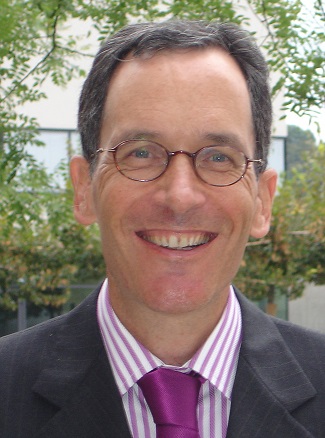
René Pahud de Mortanges (*1960) is since 1992 Professor at the Faculty of Law at the University of Fribourg, Switzerland, where he teaches legal history, state-religion relationships, religious laws and constitutional law. He also serves as Director of the Institute of Law and Religion, Fribourg, was from 2007-2011 a member of the steering committee of the National Research Program, and serves as a counselor of state authorities and churches. In his around 100 publications he deals with a large variety of historical topics, state-religion questions in Switzerland and in Europa and with the internal catholic and protestant law. He is editor of the collections Freiburger Veröffentlichungen zum Religionsrecht and Europäische Rechts- und Regionalgeschichte.
His latest publications include Religiöse Neutralität. Ein Rechtsprinzip in der multireligösen Gesellschaft (2008), Religionsrecht: Eine Einführung in das Jüdische, Christliche und Islamische Recht (with Petra Bleisch, David Bollag, and Christian Tappenbeck, 2010); Eglise Catholique et Etat en Suisse (with Libero Gerosa, 2010); Religion und Integration aus der Sicht des Rechts (2010), Die Kirchensteuern juristischer Personen in der Schweiz (with Raimund Süess and Christian R. Tappenbeck, 2012) and Mitgestaltungsmöglichkeiten für Laien in der katholischen Kirche. Rechtslage und pastorale Perspektiven (2013).
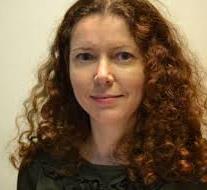
Barbora Bukovská has been ARTICLE 19’s Senior Director for Law and Policy since 2009. She leads on the development of all ARTICLE 19 policies and provides legal oversight and support to legal work across the organization. Barbora has an extensive experience working with various organizations on a range of human rights issues, including protection from discrimination, access to justice, deprivation of liberty, reproductive rights and community development. She also initiated approximately 50 cases at the European Court of Human Rights on these issues and has published a number of reports and articles on a broad range of human rights. From 2006 to 2008, she was the Legal Director at the Mental Disability Advocacy Centre, an international organization working on the rights of people with disabilities in Europe and Central Asia. She graduated from the Law School of Charles University in Prague and has earned a doctorate degree in law in Slovakia and an LLM degree from Harvard Law School. In 1998 and 1999, she was a visiting scholar at the Columbia University Law School in New York.
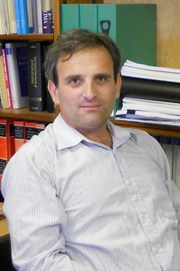
Dr. Joseph E. David has held many positions which include a Sub-Faculty Associate Member, Senior Lecturer at Sapir Academic College and the Hebrew University of Jerusalem, and a Research Fellow at Van Leer Jerusalem Institute. His interests are Law and Religion, Comparative Jurisprudence, Legal Theory and Legal History. Dr. David is currently working on perceptions of kinship and incest in medieval thought (mainly within the Karaite and the Eastern Churches legal writings). Some of his publications include The State Rabbinate: Election, Separation and Freedom of Expression (Jerusalem: Israel Democracy Institute Press, 2000) (Hebrew); The Family and the Political: The Political Meaning of the Family in a Liberal Society (Jerusalem: Israel Democracy Institute, 2012) (Hebrew); Toleration within Judaism, with Martin Goodman, Corinna Kaiser, and Simon Levis-Sullam (Oxford: The Littman Library of Jewish Civilization, 2013) (English); and Between Logos and Nomos – Law and Theology in Medieval Jewish Thought (Tübingen: Mohr Siebeck, forthcoming )(English).
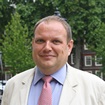
Mark Hill QC is a leading barrister with Chambers in London and specializes in litigation concerning religious matters in the domestic courts in the United Kingdom and at the European Court of Human Rights in Strasbourg: these include Eweida v UK, The Church of Jesus Christ of Latter-day Saints v UK (ECtHR), and Preston v President of Methodist Church Conference (UK Supreme Court). He is Honorary Professor at the Centre for Law Religion, Cardiff University, Extraordinary Professor at the University of Pretoria, and Ecumenical Fellow in Canon Law at the Venerable English College in Rome. He sits as a judge in secular courts and those of the Church of England, including the judicial office of Chancellor of Europe. He was President of the European Consortium for Church and State Research in 2012. He is Convenor of the United Kingdom Interfaith Legal Advisors Network and Consultant Editor of the Ecclesiastical Law Journal. His publications include Ecclesiastical Law (3rd ed., 2007); English Canon Law (1998); Religious Liberty and Human Rights (2002); Jowitt’s Dictionary of English Law (2010); Religion and Law in the United Kingdom (2011); and Religion and Discrimination Law in the European Union (2012). He is a member of the Editorial Boards of the Oxford Journal for Law and Religion and the Revista General de Derecho Canónico y Derecho Eclesiástico del Estado.
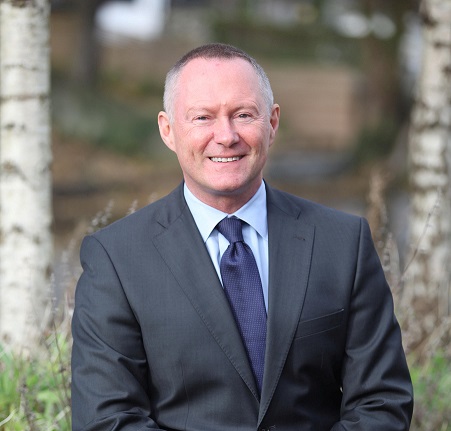
Michael O’Flaherty is Chief Commissioner of the Northern Ireland Human Rights Commission and Professor of Human Rights Law and Director of the Irish Centre for Human Rights at the National University of Ireland Galway. He holds degrees in law, philosophy, theology, and international relations. From 2003 to 2012 he was Professor of Applied Human Rights and Co-director of the Human Rights Law Centre at the University of Nottingham. Recent publications address themes of freedom of expression, sexual orientation and gender identity, and the diplomacy of human rights. He established the UN human rights field missions in Bosnia and Herzegovina (1994) and Sierra Leone (1998) and subsequently guided UN headquarters support to its human rights program across the Asia-Pacific region. He was a member (and latterly chairman) of the United Nations Human Rights Committee (2004-2012), during which time he drafted General Comment 34 on Freedom of Opinion and Expression. He is a member of numerous international human rights advisory bodies and editorial boards and is a Fellow of the Royal Society of the Arts.
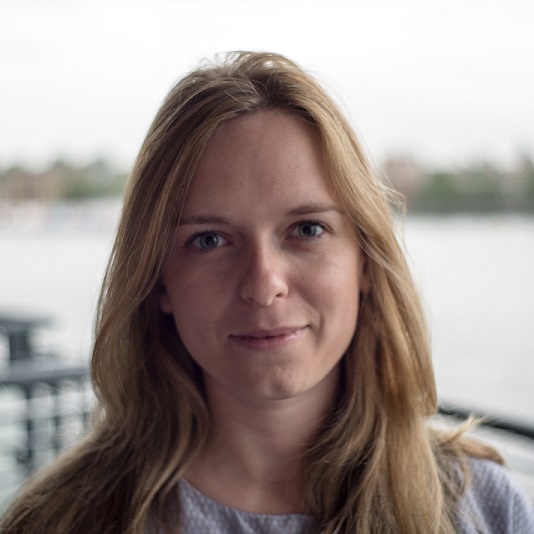
Megan Pearson is a PhD candidate at LSE, having completed her LLM at King's College London and her undergraduate degree at the University of Cambridge. She was called to the bar by Middle Temple. Her research focuses on the conflict between freedom of religion and the prohibition of sexual orientation discrimination. She has contributed to the Theos Report 'Religion and Law' (2012) and an article on the recent case of Eweida v UK is forthcoming in the Human Rights Law Review.
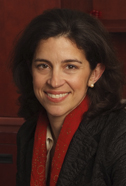
Helen Alvaré is a Professor of Law at George Mason University School of Law, where she teaches Family Law, Law and Religion, and Property Law. She publishes on matters concerning marriage, parenting, non-marital households, abortion and the First Amendment religion clauses. She is faculty advisor to the law school’s Civil Rights Law Journal, chair of the Task Force on Conscience Protection of the Witherspoon Institute (Princeton, New Jersey), president of the Chiaroscuro Institute (New York, New York), chair of the Catholic Women’s Forum, a consultor for the Pontifical Council of the Laity (Vatican City), an advisor to the US Conference of Catholic Bishops (Washington, DC), and an ABC news consultant. She cooperates with the Permanent Observer Mission of the Holy See to the United Nations as a speaker and a delegate to various United Nations conferences concerning women and the family. In addition to her publications in law reviews and other academic journals, Professor Alvaré publishes regularly at thepublicdiscourse.com, and in news outlets including the New York Times, the Washington Post, the Huffington Post, the Weekly Standard, and the Washington Examiner. She also speaks at academic and professional conferences in the United States, Europe, Latin America and Australia.
Professor Alvaré received her law degree from Cornell University School of Law and her master’s degree in Systematic Theology from the Catholic University of America. Prior to joining the faculty of George Mason University, she taught at the Columbus School of Law at the Catholic University of America; represented the US Conference of Catholic Bishops before legislative bodies, academic audiences and the media; and was a litigation attorney for the Philadelphia law firm of Stradley, Ronon, Stevens & Young.
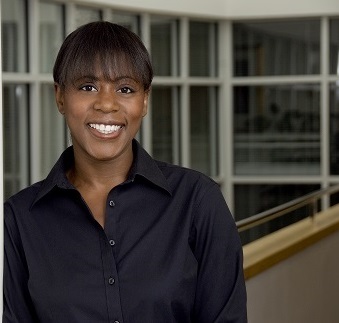
Angela M. Banks is the Cabell Research Professor of Law at William & Mary School of Law. She is an immigration expert, and her scholarship in the areas of immigration, international human rights, and law and social change has appeared in journals such as the Emory Law Journal, William & Mary Law Review, Lewis & Clark Law Review, St. John’s Law Review, and University of Pennsylvania Journal of International Law. Prior to joining the William & Mary faculty, Professor Banks was the Reginald F. Lewis Fellow for Law Teaching at Harvard Law School. She has also served as a legal advisor to Judge Gabrielle Kirk McDonald at the Iran-United States Claims Tribunal; an associate at Wilmer, Cutler & Pickering in Washington, DC; and as law clerk for Judge Carlos F. Lucero of the US Court of Appeals for the Tenth Circuit. She received a BA in sociology from Spelman College and a Master of Letters in sociology from Oxford, where she was a Marshall Scholar. Professor Banks is a 2000 graduate of Harvard Law School, where she served as an editor of the Harvard Law Review and the Harvard International Law Journal.
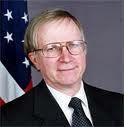
Ambassador Randolph Marshall Bell is a member of the Board of Trustees of the First Freedom Center of Richmond, Virginia. He was appointed President of the Center in April of 2010, a position he held until August 2013. He possesses a long and distinguished record of diplomatic and public service. He is the former Ambassador-at-Large and Special Envoy for Holocaust Issues for the United States Department of State (2002-2003). He served also as Acting Deputy Assistant Secretary of State for NATO and Bilateral Affairs, Bureau of European Affairs (2001); Director, German, Austrian and Swiss Affairs (2001-2002); Acting Ambassador, U.S. Embassy, Bern (1999-2000); Director, UK, Ireland and Benelux Affairs (1996-1999); Director, Russian and Eurasian Analysis, Bureau of Intelligence and Research (1993-1996); Counselor for Political Affairs, U.S. Embassy Brussels (1989-1993); and as Counselor for Political and Economic Affairs, U.S. Embassy, Prague (1985-1988).
Ambassador Bell led the US team that helped organize the London Conference on Nazi Gold in December 1997, negotiated the successful closeout of the postwar Tripartite Gold Commission, and also played an important role in establishing the $61-million Nazi Persecutee Relief Fund. He served as a member of the Board of Trustees of the German Foundation, “Remembrance, Responsibility and Future”, and as an observer to the International Commission on Holocaust Era Insurance Claims. He is currently on the board of the Virginia Holocaust Museum and a member of the International Council of Austrian Service Abroad. In 2004, Ambassador Bell received the Decoration for Services to the Republic of Austria from the Austrian Order of the Silver Star. From 2003-2009, Ambassador Bell was President of the World Affairs Council of Greater Richmond. He is a graduate of The College of William & Mary and of Cambridge University.
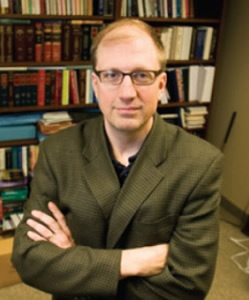
Thomas Berg grew up in Chicago and received a B.S. in journalism from Northwestern University, an M.A. in philosophy and politics from Oxford University, and both an M.A. in religious studies and a J.D. from the University of Chicago, all with honors. He was a Rhodes Scholar at Oxford. While in law school, Berg served as executive editor of the University of Chicago Law Review and won the Beale and Bustin prizes for legal writing and student scholarship. He also served as musical director for three law-student musical comedy shows.
After clerking for Judge Alvin Rubin of the U.S. Court of Appeals for the Fifth Circuit, Berg practiced law in Chicago with Mayer, Brown and Platt. In addition to handling general commercial litigation, Berg specialized in writing briefs in the U.S. Supreme Court and federal courts of appeals, and also handled a range of legal matters for the Roman Catholic Archdiocese of Chicago and other religious institutions.
Before joining the St. Thomas faculty, Berg taught for 10 years at Samford University’s Cumberland Law School. In addition to teaching constitutional law, law and religion, intellectual property, civil procedure, and federal courts, Berg is one of the leading scholars of law and religion in the United States. He has written approximately 50 book chapters and journal articles, and dozens of op-eds and shorter pieces, on religious freedom, constitutional law, and the role of religion in law, politics and society. Berg is the author of The State and Religion in a Nutshell (now in a second edition), part of West Publishing Company's leading series of law books; and he is co-author with Michael McConnell and John Garvey of Religion and the Constitution, a casebook published by Aspen Publishing (third edition).
At St. Thomas, Berg has served as Associate Dean for Academic Affairs and as co-director of the Terrence J. Murphy Institute for Catholic Thought, Law, and Public Policy. He has written more than 30 briefs on issues of religious liberty and free speech in cases in the U.S. Supreme Court and lower courts and has often testified to Congress in support of legislation protecting religious freedom. For this work, he received the Religious Liberty Defender of the Year Award from the Christian Legal Society in 1996. He has also received the Alpha Sigma Nu Book Award (2004) from the Association of Jesuit Colleges and Universities, for the Religion and the Constitution casebook, and the John Courtney Murray Award from DePaul University College of Law for scholarly and other contributions to church-state studies.
Berg has also been a visiting professor at the University of Aix-Marseille (Aix-en-Provence, France) and the University of Siena (Italy). He has made numerous presentations to academic, professional, religious, and community groups, including the annual conventions of the American Bar Association and the Association of American Law Schools. He is a regular contributor to Mirror of Justice, a weblog on Catholic legal theory. He is past chair of the Law and Religion Section of the Association of American Law Schools; a member of the European-American Consortium on Church-State Relations; and a member of national boards or advisory committees for the National Council of Churches, the Pew Forum on Religion and Public Life, the DePaul University Center for Church-State Studies, and the Democrats for Life of America.
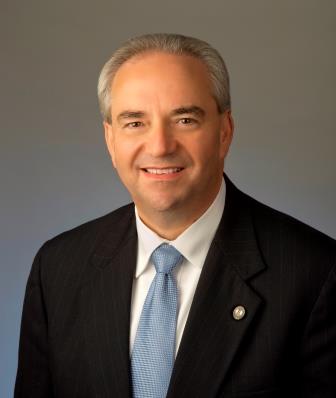
Elected in 2005 and 2009, William T. “Bill” Bolling is the 39th and current Lieutenant Governor of the Commonwealth of Virginia. He also currently serves in Governor Bob McDonnell’s cabinet as the Chief Jobs Creation Officer. Raised in the coal fields of southwest Virginia and southern West Virginia, Mr. Bolling was the first member of his family to graduate from college, earning a bachelor’s degree in political science from the University of Charleston in 1978. He worked in the insurance industry, becoming a Vice President with Riggs, Counselman, Michaels and Downes, a large independent insurance agency. Mr. Bolling first ran for elected office in 1991, when he was elected to the Hanover County Board of Supervisors, serving as member and then Chairman of the Board until 1995, when he was elected to the Senate of Virginia. He was re-elected in 1999 and 2003. As lieutenant governor, Mr. Bolling has promoted multiple programs focusing on encouraging a healthy and active life, including raising awareness about cervical cancer, HPV, and asthma. He put forth a statewide initiative, the 2-year “100 Ideas for the Future of Virginia” focusing on reaching out to the public for feedback and ideas through a series of town hall meetings, mailings, and an integrated web site, with the aim of developing a long-term strategy for addressing issues such as education, transportation, public safety, health care, protecting the environment, and reforming government.
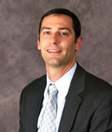
Zachary Calo is Associate Professor of Law at the Valparaiso University School of Law, where he has taught since 2007. He previously practiced banking and commercial law in Washington, DC. He holds a JD from the University of Virginia School of Law, a BA and MA in History from The Johns Hopkins University, a PhD in History from the University of Pennsylvania, and is a PhD candidate (exp. 2011) in Religious Studies at the University of Virginia. He has been a visiting fellow at the Brookings Institution, the Pew Forum on Religion and Public Life, and the Institute for Humane Studies. He serves on the Organizing Committee of the AALS Law and Religion Section and is a member of the Editorial Board of the European Journal of Law and Religion. He is currently writing books on American Catholic social thought, Richard Hooker, human dignity and human rights, and law and secularism.
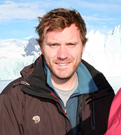
Mr. Carey is a PhD candidate in Comparative Theology at Boston College where he studies Muslim-Christian relations in sub-Saharan Africa. His approach to Theology is deeply rooted in a commitment to inter-religious dialogue, human rights, and social justice as reflected in his professional domestic and foreign experience in the non-profit educational sector. Specifically, Mr. Carey’s research examines how Muslim and Christian leaders in Kenya and Tanzania are responding to the HIV/AIDS pandemic from a religious standpoint. It also considers how these religious leaders can affirm the inherent dignity of the individual suffering from the disease while also trying to make sense of the negative impact of HIV/AIDS on the broader society. Key figures in his work include David B. Burrell, Wilfred Cantwell Smith, Hans Küng, Abdullaziz Sachedina, and Abdullahi an-Na’im. His dissertation considers how the inter-religious Muslim and Christian response to HIV/AIDS in East Africa can be seen as a model for a practical inter-religious engagement. Mr. Carey has additionally served as the Director of the annual Engaging Particularities Conference at Boston College which brings young scholars in the field of Comparative Theology together to present their work.

H. Victor “Skip” Condé is an international lawyer and educator in the field of International Human Rights law, policy and practice. He received his BA in Classical Languages from UC Irvine;Juris Doctorate from UC Davis Law School, LLM in International and Comparative Human Rights Law from the Univ. of Essex, England, MA in International Human Rights Theory and Practice from Simon Greenleaf Law School, Diplôme in International and Comparative Human Rights and Humanitarian Law from the International Institute of Human Rights in Strasbourg, France.
He is a former professor of human rights law at Trinity Law School in California, and has taught human rights in the US and in Europe, most recently at the University of Strasbourg, France. He is the author of many books and articles on international human rights law, policy and practice. His latest book is entitled “An Encyclopedia of Human Rights in the United States.”
He has served as an expert legal consultant on international human rights law to the Permanent Representative of the Holy See to the United Nations Human Rights Council. He is licensed to practice law in California and federal courts.
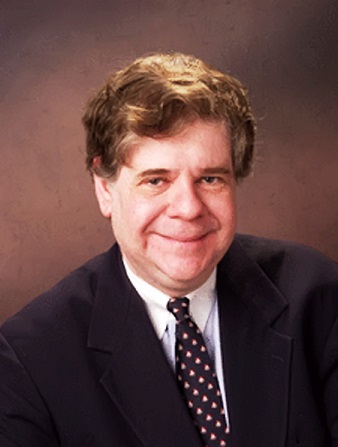
Perry Dane is a Professor of Law at the Rutgers School of Law, Camden. He was previously on the faculty of the Yale Law School, and served as a law clerk to William J. Brennan, Jr., Associate Justice of the United States Supreme Court. Professor Dane is a graduate of Yale College (1978) and the Yale Law School (1981). His research and teaching interests include religion and the law, conflict of laws, constitutional law, jurisdiction, American Indian law, the law of charities, the jurisprudence of Jewish law, legal pluralism, comparative constitutionalism, the debate on same-sex marriage, and the Canadian legal system. In 2011, Professor Dane received the Inaugural Dean’s Award for Scholarly Excellence at the Rutgers School of Law-Camden. Professor Dane was a full-time resident fellow at the Tikvah Center for Law & Jewish Civilization at the New York University Law School during the 2010-11 academic year. He has taught intensive courses on religion and the law at Canadian law schools and during the 2000-01 academic year, was a faculty fellow at the Rutgers Center for the Critical Analysis of Contemporary Culture during their program on “Secularism.” He has also been a member of the national seminar of the Project on Religious Institutions at Yale University’s Program on Non-Profit Organizations and a guest of the Shalom Hartman Institute In Israel. Some of Professor Dane’s publications can be accessed at www.ssrn.com/author=48596.
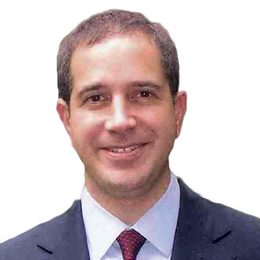
Marc O. DeGirolami holds five degrees: AB (Duke University), MA (Harvard), JD (Boston University School of Law), LLM and JSD (Columbia University School of Law). His scholarship focuses on law and religion, constitutional law, and criminal law and includes the book The Tragedy of Religious Freedom (Harvard University Press 2013) and papers appearing in such journals as Constitutional Commentary, Legal Theory, Ohio State Journal of Criminal Law, Boston College Law Review, Alabama Law Review, and St. John’s Law Review. He writes for The New Republic and is a member of the popular legal blog “Mirror of Justice.” He clerked for Judge William E. Smith of the US District Court for the District of Rhode Island and Judge Jerome Farris of the US Court of Appeals for the Ninth Circuit. He was Assistant District Attorney in Cambridge, Massachusetts. Prior to joining the St. John’s University faculty, he taught legal research and writing as an Associate-in-Law at Columbia Law School and was a Visiting Assistant Professor and Scholar in Residence at Catholic University’s Columbus School of Law. At St. John's, he teaches Constitutional and Criminal Law, Law and Religion, and Professional Responsibility and is the Associate Director of the Center for Law and Religion.
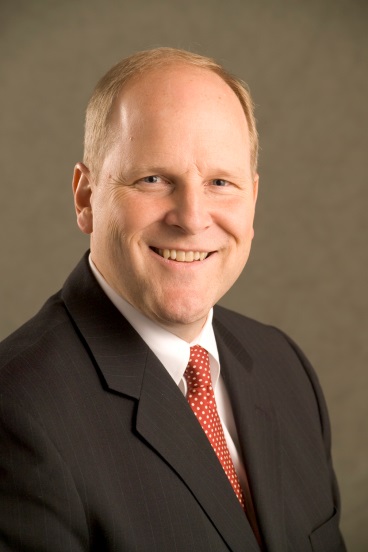
Gary Doxey, former ICLRS Managing Director, rejoined Center in 2009 after three years during which he served as president of the Mexico City South Mission of The Church of Jesus Christ of Latter-day Saints. In April 2011 Professor Doxey called as an Area Authority Seventy of the Church. Before joining the law school, Professor Doxey served under Governor Olene S. Walker of Utah as chief of staff – the state’s top appointed official, head of the cabinet, and chief operating officer of the executive branch. Prior to that, he served six years as general counsel to Utah Governor Michael O. Leavitt. Professor Doxey has spent much of his career in Utah state government, serving as deputy commissioner of financial institutions and as associate general counsel to the Utah Legislature. He is also a professor of history at Brigham Young University and has taught at the University of Utah. He spent his early legal career as a commercial law practitioner and was a judicial clerk for the United States Bankruptcy Court for the District of Utah. He has a from Cambridge University and a JD from BYU. He speaks or reads several languages and is the author of many scholarly publications. In January 2011 he was named chair of the Center’s Development Committee.
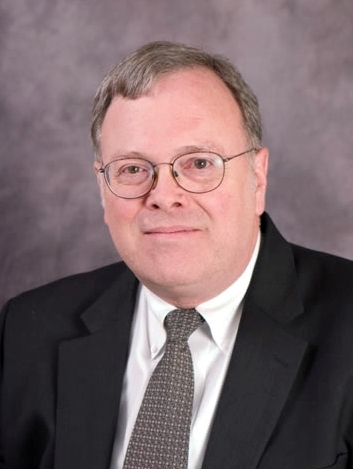
International Center for Law and Religion Studies,
J. Reuben Clark Law School, Brigham Young University
Professor Cole Durham was named President of ICLARS in September 2011, succeeding Professor Silvio Ferrari. A graduate of Harvard College and Harvard Law School, where he was a Note Editor of the Harvard Law Review and Managing Editor of the Harvard International Law Journal, Professor Durham has been heavily involved in comparative law scholarship, with a special emphasis on comparative constitutional law. From 1989 to 1994, he served as the Secretary of the American Society of Comparative Law, and he is also an Associate Member of the International Academy of Comparative Law in Paris, where he was awarded the honorary designation of University Professor in 1999. In January 1, 2000, he was appointed to be the Director of the International Center for Law and Religion Studies (ICLRS) at Brigham Young University. Since 1994, he has also been a Recurring Visiting Professor of Law at Central European University in Budapest, where he teaches comparative constitutional law to students from throughout Eastern Europe, and increasingly from Asia and Africa as well. He has also been a guest professor in Gutenberg University in Mainz, Germany and at the University of Vienna. In January, 2009, he was awarded the International First Freedom Award by the First Freedom Center in Richmond, Virginia, and was awarded an honorary doctorate by Ovidius University in Constanţa, Romania in June, 2013. Professor Durham served from 1997-2013 as a member of the Advisory Council on Freedom of Religion or Belief of the OSCE’s Office of Democratic Institutions and Human Rights. He has provided technical assistance on constitutions and laws dealing with freedom of religion or belief in approximately 50 countries worldwide. He has organized a series of conferences on comparative law issues at Brigham Young University and at other institutions in the United States over the past 20 years which have brought about 900 scholars and experts dealing with comparative constitutional law themes from over 100 countries to the United States. He is a co-author with Brett Scharffs of Religion and the Law: National, International and Comparative Perspectives (Aspen 2010), and with William Bassett and Robert Smith of Religious Organizations of the Law, an annually updated treatise published by Thompson Reuters/West. He is the editor (with Noel Reynolds) of Religious Liberty in Western Thought, and (with Silvio Ferrari) Law and Religion in Post-Communist Europe, a co-editor of Facilitating Freedom of Religion or Belief: A Deskbook (Brill 2004), and also of Religious Organizations in the United States (Carolina Academic Press 2006). He has participated in hearings before the U.S. Congress and European parliamentary bodies on a variety of issues relevant to freedom of religion. He is a Co-Editor-in-Chief of the Oxford Journal of Law and Religion.
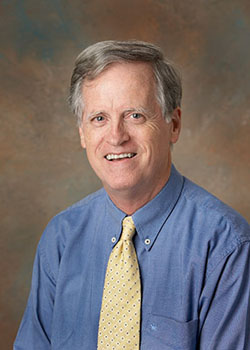
Edward Gaffney is professor of constitutional history and international law at Valparaiso University, where he served for seven years as Dean. He completed the S.T.L. degree at the Gregorian University in Rome in 1967, did biblical studies at the Pontifical Biblical Institute, and translated (Latin-English) for guests of the Vatican Secretariat for Christian Unity during the third and fourth sessions (1964 and 1965) of the Second Vatican Council. He did his JD degree and an MA in History at Catholic University of America (1976), and the LLM degree at Harvard Law School (1977). In 1976 Professor Gaffney was a co-founder of the Council on Religion and Law, and served for over twenty-five years on the editorial board of its scholarly publication, the Journal of Law and Religion.
For some 20 years he has been the editor of Judge John Noonan’s 1985 collection of materials, now called Religious Freedom: History, Cases and Other Materials on the Interrelationship between Government and Religion (Foundation Press, 3rd edition, 2011). In 2012 he co-authored with Ambassador Douglas Kmiec of Pepperdine University and Doctor Patrick Whelan of Harvard Medical School a case study of the relationship between religion and politics in the United States. In 2013—the seventeen-hundredth anniversary of the so-called “Edict of Milan”—Professor Gaffney contributed the article on the “American Reception of Constantine” in the new three-volume Encyclopedia Flavius Valerius Constantinus, edited by Alberto Melloni of the Pope John XXIII Centre at the Faculty of Law in the University of Bologna (to be launched in June of 2013). He is now editing a volume entitled Embers under the Ashes: Hope for Renewal and Reform of the Catholic Church Fifty Years After Vatican II? and is also editing a set of materials for use in law schools and in theology and religious studies departments, entitled War and Peace: History, Moral Reasoning, and International Law on the Use and Abuse of Force.
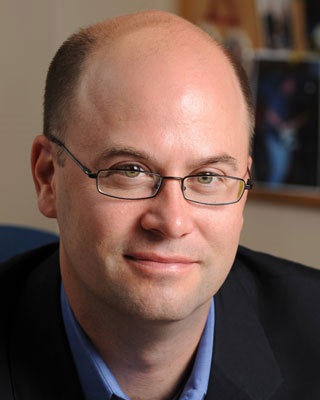
Richard W. Garnett is Professor of Law and Concurrent Professor of Political Science at the University of Notre Dame, where he teaches and writes about constitutional law, religious freedom, and the freedom of speech. He is also the founding Director of the Notre Dame Program on Church, State, and Society. Professor Garnett received his B.A. in Philosophy summa cum laude from Duke University in 1990, and his J.D. from Yale Law School in 1995. Before coming to Notre Dame, he served as law clerk to Chief Justice Rehnquist during October Term 1996 and to then-Chief Judge Richard S. Arnold of the United States Court of Appeals for the Eighth Circuit. He practiced law at the Washington, D.C. law firm of Miller, Cassidy, Larroca & Lewin, specializing in criminal defense, religious liberty, and education reform matters. He lives in South Bend, Indiana with his wife, Professor Nicole Stelle Garnett, and their four children, Margaret, Thomas, Elizabeth, and John.
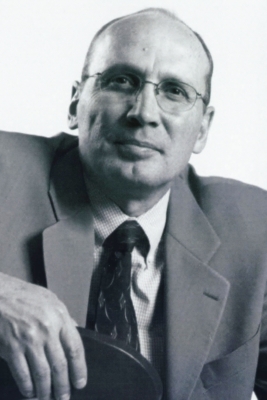
Frederick Mark Gedicks holds the Guy Anderson Chair, one of three endowed chairs at the J. Reuben Clark Law School. He has received multiple teaching awards and has held visiting appointments at the University of Denver, the European University Institute of Florence, the University of Milan, the University of Notre Dame, the University of North Carolina at Chapel Hill, the University of Siena, and the University of Utah. He is a dual citizen of the United States and Canada and speaks fluent Italian. He has lectured in Italian at universities throughout northern Italy, including the Catholic University of the Sacred Heart (at both its Milan and Piacenza campuses) and the Universities of Como, Florence, Genoa, Milan, Siena, and Turin.
Professor Gedicks’s current research focuses on the effects of belief on American law and society, the Religion Clauses of the 1st Amendment, and the original meaning of the Due Process Clauses of the 5th and 14th Amendments. He is widely published on law and religion, constitutional law, and constitutional interpretation, including articles or essays in the Boston College Law Review, Constitutional Commentary, Emory Law Journal, George Washington Law Review, Indiana Law Journal, Southern California Law Review, Vanderbilt Law Review, and Virginia Law Review. Among his recent publications are “Incorporation of the Establishment Clause Against the States: A Logical, Textual, and Historical Account,” Indiana Law Journal (forthcoming Winter 2013); “God of Our Fathers, Gods for Ourselves: Fundamentalism and Postmodern Belief,” 18 William & Mary Bill of Rights Journal 901-14 (2010); “Truth and Conseqences: Mitt Romney, Proposition 8, and Public Reason,” 61 Alabama Law Review 337-71(2009); and “An Originalist Defense of Substantive Due Process: Magna Carta, Higher-Law Constitutionalism, and the Fifth Amendment,” 58 Emory Law Journal 585-673 (2009). He has also published two books, Choosing the Dream: The Future of Religion in American Public Life (Greenwood Press, 1991) (with Roger Hendrix), and The Rhetoric of Church and State: A Critical Analysis of Religion Clause Jurisprudence (Duke University Press, 1995).
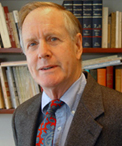
Kent Greenwalt received a BA from Swarthmore in 1958, a B.Phil. from Oxford in 1960, and an LLB from Columbia, where he was editor-in-chief of the law review, in 1963. Before joining the Columbia University Law faculty in 1965, he was law clerk to US Supreme Court Justice John M. Harlan. He subsequently spent part of a summer as an attorney with the Lawyers Committee for Civil Rights in Jackson, Mississippi. From 1966 to 1969, he served on the Civil Rights Committee of the Association of the Bar of the City of New York. He was a member of the Due Process Committee of the American Civil Liberties Union, 1969-71 and Deputy US Solicitor General, 1971-72. He was a Fellow of the American Council of Learned Societies, a visiting fellow at Clare Hall, Cambridge, 1972-73 and at All Souls College, Oxford, 1979. He has been a Fellow of the American Academy of Arts and Sciences and a member of the American Philosophical Society, and was President of the American Society for Political and Legal Philosophy, 1991-93.
Professor Greenawalt’s main interests are in constitutional law and jurisprudence, with special emphasis on church and state, freedom of speech, legal interpretation, and criminal responsibility. Publications include Conflicts of Law and Morality (1987); Religious Convictions and Political Choice (1988); Speech, Crime, and the Uses of Language (1989); Law and Objectivity (1992); Fighting Words (1995); Private Consciences and Public Reasons (1995); Statutory Interpretation: Twenty Questions (1999); Does God Belong in Public Schools? (2005); Religion and the Constitution, Vol. 1, Free Exercise and Fairness (2006); Vol. 2, Establishment and Fairness (2008).
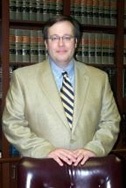
Jeffrey B. Hammond is an Associate Professor of Law at Faulkner University’s Thomas Goode Jones School of Law in Montgomery, Alabama. Professor Hammond is a 2001 alumnus of Emory University’s joint-degree program in law and religion. He received the Herman Dooyeweerd Prize in Law and Religion from Emory’s Center for the Study of Law and Religion. From 2001 to 2007, Professor Hammond practiced exclusively in the area of health law while working for two large law firms in Nashville, Tennessee. Professor Hammond’s research interests include law and religion, health law (especially the health care delivery system and health care fraud and abuse), and law and bioethics (especially end-of-life issues). Professor Hammond has published several law review articles. He has spoken at several conferences and symposia organized by leading American law schools. Professor Hammond is married to Susan Poteet Hammond, who is an Assistant Professor of Computer Science at Faulkner University. They have three children.
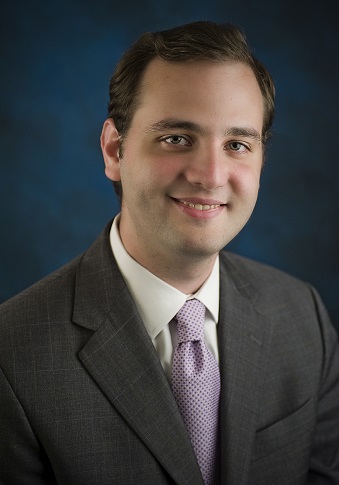
Michael Helfand is an associate professor at Pepperdine University School of Law and associate director of the Diane and Guilford Glazer Institute for Jewish Studies. He received his JD from Yale Law School in 2007 and his PhD in Political Science from Yale University in 2009. His primary research interests include law and religion, arbitration, constitutional law, and contracts. In particular, his work focuses on the intersection of private law and religion – such as religious arbitration, religious litigation, religious contracts and religious torts – as well as the intersection of group rights and the law, political theories of toleration, and multiculturalism. Professor Helfand’s articles have appeared in a variety of journals, including the New York University Law Review, Minnesota Law Review, Boston University Law Review, George Mason Law Review, University of Pennsylvania Journal of Constitutional Law, Journal of Law Religion and State, William & Mary Bill of Rights Journal, and Journal of Law & Religion. Prior to joining the Pepperdine Law faculty, Professor Helfand was an associate at Davis Polk & Wardwell LLP, where his practice focused on complex commercial litigation. Before entering private practice, Professor Helfand clerked for the Honorable Julia Smith Gibbons of the US Court of Appeals for the Sixth Circuit.
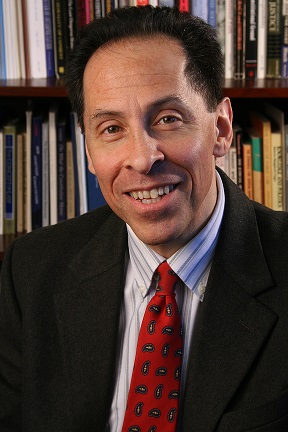
Andrew Koppelman is John Paul Stevens Professor of Law and Professor of Political Science at Northwestern University. He is a graduate of the University of Chicago (AB Humanities 1979), and three times of Yale University (MA Political Science 1986, JD Yale Law School 1989 [Senior Editor, Yale Law Journal], PhD Political Science 1991 [Edward S. Corwin Award for best dissertation in public law, American Political Science Association, 1993]). Professor Koppleman’s scholarship focuses on issues at the intersection of law and political philosophy. His latest books are The Tough Luck Constitution and the Assault on Health Care Reform (Oxford University Press 2013) and Defending American Religious Neutrality (Harvard University Press 2013). He has also published more than 80 articles in books and scholarly journals. His Bad News for Mail Robbers: The Obvious Constitutionality of Health Care Reform is the most viewed article in the history of the Yale Law Journal Online (over 100,000 hits in the first month of posting). He is also an occasional contributor to the Balkinization blog. His scholarly papers may be viewed at http://papers.ssrn.com/sol3/cf_dev/AbsByAuth.cfm?per_id=296809.
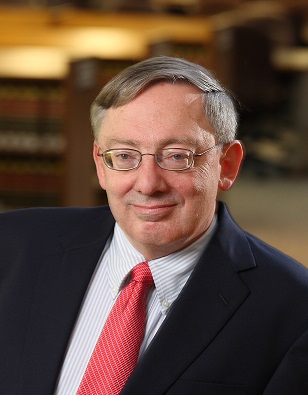
Douglas Laycock, one of the nation's leading authorities on the law of remedies and also on the law of religious liberty, is the Robert E. Scott Distinguished Professor of Law and Professor of Religious Studies at the University of Virginia. Before joining Virginia's faculty in 2010, Laycock served as the Yale Kamisar Collegiate Professor of Law at the University of Michigan Law School. Prior to that he taught for 25 years at the University of Texas and for five years at the University of Chicago. He is the author of the leading casebook Modern American Remedies; the award-winning monograph The Death of the Irreparable Injury Rule; and many articles in the leading law reviews. He has co-edited a collection of essays, Same-Sex Marriage and Religious Liberty, and he recently published Religious Liberty, Volume I: Overviews and History, and Volume II: The Free Exercise Clause. These two volumes are the first half of a four-volume collection of his many writings on religious liberty. He has in addition published many articles on religious liberty and on the law of remedies. He is an experienced Supreme Court litigator, and he played a key role in developing state and federal religious liberty legislation. He is a graduate of Michigan State University and the University of Chicago Law School, a Fellow of the American Academy of Arts and Sciences, and a Vice President of the American Law Institute.
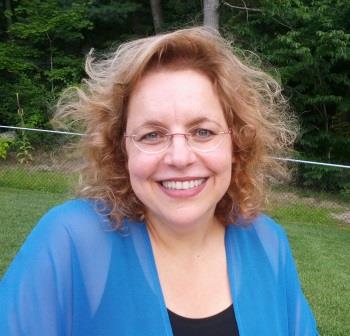
Dr. Ofrit Liviatan is a lecturer on law and politics at Harvard University’s Department of Government, and an associate of the Weatherhead Center for International Affairs at Harvard University. She holds a PhD and MA (with distinction) from the Fletcher School of Law and Diplomacy at Tufts University and an Israeli law degree. She was admitted to the Israel Bar and practiced law specializing in constitutional, criminal and commercial litigation. Dr. Liviatan’s research and teaching interests include: law and politics, the role of legal mechanisms in the accommodation of diversity; tensions between legal theory and practice; and religion and state. In 2013-14 Dr. Liviatan will direct an interdisciplinary research project at Harvard on ethnocultural diversity and governance. She is the founder and co-chair of the Harvard Seminar on Religion and Politics.
Her current work-in-progress investigates the dynamics between integrative and transformative functions of law in ethno-cultural and ethno-national conflicts, including Northern Ireland and Israel/Palestine. Dr. Liviatan’s representative publications include: “Competing Fundamental Values: Comparing Law’s Role in American and Western-European Conflicts over Abortion” (in Law, Religion, Constitution: Freedom of Religion, Equal Treatment, and the Law, W. Cole Durham, Jr. et al. eds. 2013); “From Abortion to Islam: The Changing Function of Law in Europe’s Cultural Debates” 36(1) Fordham Int’l L. J. 93 (2012-3); “Faith in the Law: The Role of Legal Arrangements in Religion-Based Conflicts Involving Minorities”, 34 B.C. Int’l & Comp. L. Rev. 53 (2011); “The Impact of Alternative Constitutional Regimes on Religious Freedoms in Canada and England”, 32(1) B.C. Int’l & Comp. L. Rev. 45 (2009); and “Judicial Activism and Religion-Based Tensions in India and Israel”, 26(3) Ariz. J. Int’l & Comp. L. 583 (2009).
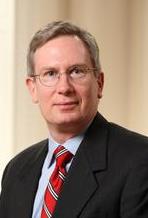
Paul G. Mahoney became dean of the University of Virginia School of Law in July 2008. He is a David and Mary Harrison Distinguished Professor and the Arnold H. Leon Professor of Law. Mahoney’s teaching and research areas are securities regulation, law and economic development, corporate finance, financial derivatives and contracts. He has published widely in law reviews and peer-reviewed finance and law and economics journals.
Mahoney joined the Law School faculty in 1990 after practicing law with the New York firm of Sullivan & Cromwell and clerking for Judge Ralph K. Winter, Jr. of the US Court of Appeals for the Second Circuit and Justice Thurgood Marshall of the US Supreme Court. He served as academic associate dean at the Law School from 1999 to 2004 and has held the Albert C. BeVier Research Chair and the Brokaw Chair in Corporate Law. He has been a visiting professor at the University of Chicago Law School, the University of Southern California Law School and the University of Toronto Faculty of Law. He has also worked on legal reform projects in Kazakhstan, Kyrgyzstan, Mongolia and Nepal.
Mahoney is a member of the Council on Foreign Relations and a fellow of the American Academy of Arts and Sciences. He served as an associate editor of the Journal of Economic Perspectives from 2004 to 2007 and as a director of the American Law and Economics Association from 2002 to 2004. He is a past recipient of the All-University Outstanding Teacher Award and the Law School’s Traynor Award for excellence in faculty scholarship.
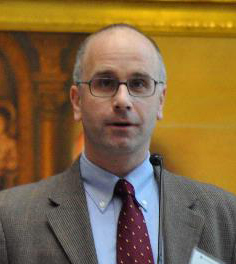
Mark Movsesian is the Frederick A. Whitney Professor of Contract Law and the Director of the Center for Law and Religion. He writes in law and religion, contracts and international law; his articles have appeared in the Oxford Journal of Law and Religion, the Harvard Law Review, the American Journal of International Law, and many others. He has been a visiting professor at Notre Dame and Cardozo Law Schools and has delivered papers at numerous workshops in the United States and Europe. He graduated summa cum laude from Harvard College and magna cum laude from Harvard Law School, where he was an editor of the Harvard Law Review and recipient of the Sears Prize, and clerked for Justice David H. Souter of the Supreme Court of the United States.

James Nelson is an Associate-in-Law, Postdoctoral Research Scholar, and Lecturer-in-Law at Columbia Law School. His research and teaching interests include constitutional law, corporations, nonprofit organizations, professional responsibility, and torts. Nelson came to Columbia Law School from the U.S. Department of Justice, where he served as a trial attorney in the Federal Programs Branch of the Civil Division. His work for the government focused on litigation involving the First Amendment, antidiscrimination law, foreign affairs, and privacy. Before joining the Department of Justice, Nelson clerked for Judge Jerry E. Smith on the United States Court of Appeals for the Fifth Circuit. In law school, he served as Editor-in-Chief of the Virginia Law Review, and received the Roger and Madeleine Traynor writing prize and the Robert E. Goldsten Award for distinction in the classroom.
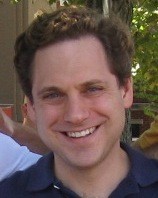
James Oleske received a BA cum laude from Middlebury College and a JD summa cum laude from Georgetown University Law Center. Prior to joining Lewis & Clark Law School, Professor Oleske served as Special Assistant to President Barack Obama and Chief of Staff of the White House Office of Legislative Affairs. Earlier in his career, he served as Chief of Staff of the Oregon Senate Majority Office; Counsel in the Office of US Senate Democratic Leader Tom Daschle; Appellate Attorney at the National Labor Relations Board; Visiting Lecturer at the Ohio State University Moritz College of Law; and Associate at Mayer, Brown & Platt. He began his career as a law clerk to then-Third Circuit Judge Samuel A. Alito, Jr. Professor Oleske’s research has focused on the intersection of free exercise rights and other constitutional values. He previously published “Federalism, Free Exercise, and Title VII: Reconsidering Reasonable Accommodation”, 6 University of Pennsylvania Journal of Constitutional Law 525 (2004), and he is currently working on an article exploring the underappreciated role of equal protection analysis in the debate over religious exemptions to same-sex marriage laws.
Professor Oleske’s research has focused on the intersection of free exercise rights and other constitutional values. He previously published Federalism, Free Exercise, and Title VII: Reconsidering Reasonable Accommodation, 6 University of Pennsylvania Journal of Constitutional Law 525 (2004), and he is currently working on an article exploring the underappreciated role of equal protection analysis in the debate over religious exemptions to same-sex marriage laws.
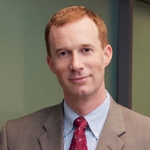
Nathan Oman joined the faculty of the Marshall-Wythe School of Law in 2006. His primary research interest is in contract law and the philosophy of private law more generally. He is also interested in t he intersection of law and religion. Professor Oman earned a BA in political science from Brigham Young University, where he was a Benson Scholar. He earned his JD, cum laude, from Harvard Law School, where he served on the Articles Committee of the Harvard Law Review and as an editor of the Harvard Journal of Law and Public Policy. Prior to law school he worked on the staff of Senator Mitch McConnell of Kentucky. After law school, he clerked for the Honorable Morris Sheppard Arnold on the US Court of Appeals for the 8th Circuit and practiced law in the Washington, DC office of Sidley Austin LLP. As a life-long member of The Church of Jesus Christ of Latter-day Saints, he is interested in the scholarly study of Mormonism, particularly Mormon legal experience. He contributes to Concurring Opinions, a popular law blog, and Times & Seasons, a group blog on Mormon issues.
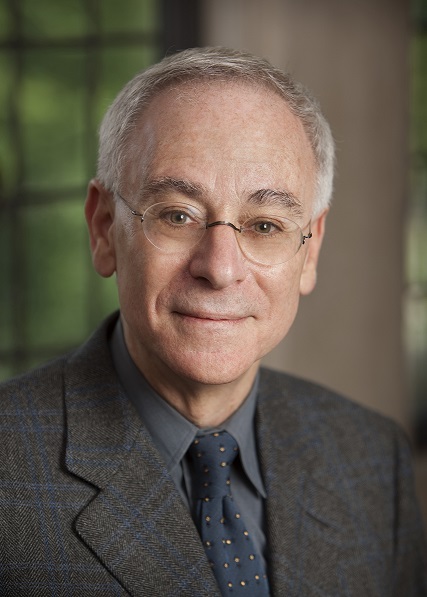
Robert Post is Dean and Sol & Lillian Goldman Professor of Law at Yale Law School. Before coming to Yale, he taught at the University of California, Berkeley, School of Law (Boalt Hall). Dean Post’s subject areas are constitutional law, First Amendment, legal history, and equal protection. He has written and edited numerous books, including Democracy, Expertise, Academic Freedom: A First Amendment Jurisprudence for the Modern State (2012); For the Common Good: Principles of American Academic Freedom (with Matthew M. Finkin, 2009); Prejudicial Appearances: The Logic of American Antidiscrimination Law (with K. Anthony Appiah, Judith Butler, Thomas C. Grey, and Reva Siegel, 2001); and Constitutional Domains: Democracy, Community, Management (1995). He publishes regularly in legal journals and other publications; recent articles and chapters include “Theorizing Disagreement: Reconceiving the Relationship Between Law and Politics” (California Law Review, 2010); “Constructing the European Polity: ERTA and the Open Skies Judgments” in The Past and Future of EU Law: The Classics of EU Law Revisited on the 50th Anniversary of the Rome Treaty (Miguel Poiares Maduro & Loïc Azuolai eds. 2010); Roe Rage: Democratic Constitutionalism and Backlash (with Reva Siegel, Harvard Civil-Rights Civil-Liberties Law Review 2007); “Federalism, Positive Law, and the Emergence of the American Administrative State: Prohibition in the Taft Court Era” (William & Mary Law Review 2006); “Foreword: Fashioning the Legal Constitution: Culture, Courts, and Law” (Harvard Law Review 2003); and “Subsidized Speech” (Yale Law Journal 1996). He is a member of the American Philosophical Society and the American Law Institute and a fellow of the American Academy of Arts and Sciences. He has an AB and PhD in History of American Civilization from Harvard and a JD from Yale Law School.
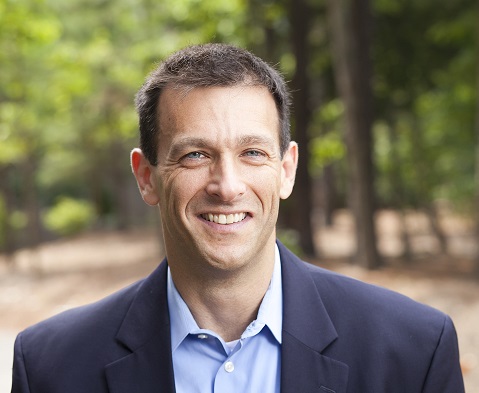
Barak Richman primary research interests include the economics of contracting, new institutional economics, antitrust, and healthcare policy. He is also on Fuqua’s Health Sector Management faculty and is a Senior Fellow at the Kenan Institute for Ethics. He won Duke Law School’s Blueprint Award in 2005 and was named Teacher of the Year in 2010. He represented the NFL Coaches Association in an amicus curiae brief in American Needle v. The Nat’l Football League, which was argued before the US Supreme Court in January 2010 and again in Brady v. The Nat’l Football League in 2011. His recent work challenging illegal practices by Rabbinical Associations was featured in the New York Times. His work is available at http://ssrn.com/author=334149.
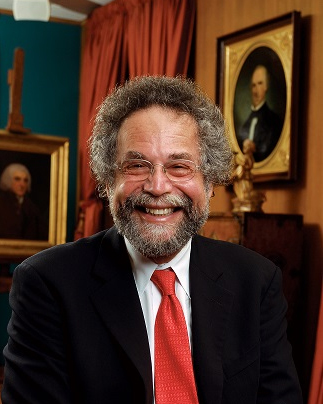
Lawrence Sager is one of the nation’s preeminent constitutional theorists and scholars. He came to Texas from New York University School of Law, where he was the Robert B. McKay Professor and Co-Founder of the Program in Law, Philosophy & Social Theory. He has also taught at Harvard, Princeton, Boston University, UCLA, and the University of Michigan. He is the author or co-author of dozens of articles, many now classics in the canon of legal scholarship, and of two books, Justice in Plainclothes: A Theory of American Constitutional Practice (Yale Univ. Press) and Religious Freedom and the Constitution (with Christopher Eisgruber) (Harvard Univ. Press).
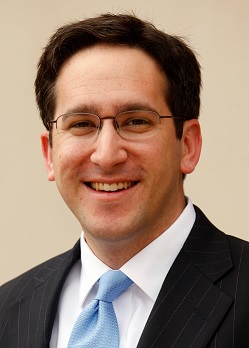
Micah Schwartzman is Professor of Law and Edward F. Howrey Professor at the University of Virginia School of Law. His research focuses on law and religion, political philosophy, and jurisprudence. His recent work has been published in the University of Chicago Law Review, Virginia Law Review, Journal of Political Philosophy, and Journal of Moral Philosophy. Schwartzman received his BA from the University of Virginia and his doctorate in politics from the University of Oxford, where he studied as a Rhodes Scholar. During law school, he served as articles development editor of the Virginia Law Review and received numerous awards, including the Margaret G. Hyde Award, the Daniel Rosenbloom Award, and the Hardy Cross Dillard Scholarship. After graduating, Schwartzman clerked for Judge Paul V. Niemeyer of the United States Court of Appeals for the Fourth Circuit. Prior to joining the faculty, he was a postdoctoral research fellow at Columbia University’s Society of Fellows in the Humanities. In the spring of 2013, he was a visiting professor at the UCLA School of Law.
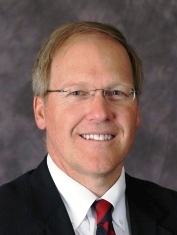
As Managing Director of the International Center for Law and Religion Studies, Robert Smith oversees activities including Center-sponsored conferences worldwide, the Annual International Law and Religion Symposium in Provo, academic publications, international law and religion initiatives, and law-reform consultations. Professor Smith is a co-author, with W. Cole Durham, Jr. and William Bassett, of the treatise Religious Organizations and the Law, published in annual updates by Thomson West. Professor Smith has also co-authored numerous articles on religious freedom and other legal topics, is a speaker at international conferences on religious topics, and teaches a course on the taxation of religious organizations at the J. Reuben Clark Law School. Before joining the law school, Professor Smith was Executive Vice-President and General Counsel to CaseData Corporation, a shareholder and chairman of the Corporate and Tax department at the law firm of Kirton & McConkie in Salt Lake City, member of law firms in Washington, D.C. and Chicago, Illinois, and a CPA for Deloitte & Touche. Professor Smith received a BS in accounting from BYU, an MBA magna cum laude from the University of Notre Dame, and a JD magna cum laude from the J. Reuben Clark Law School, where he was named to the Order of the Coif and served as Editor-in-Chief of the law review.
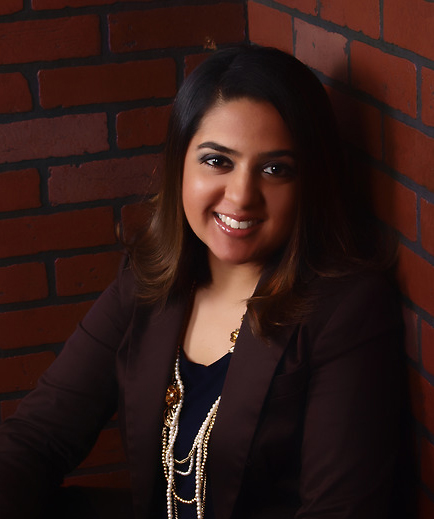
Asma T. Uddin is Legal Counsel at the Becket Fund for Religious Liberty, a non-profit, non-partisan, public interest law firm based in Washington, D.C. She has experience working on both international and domestic religious freedom cases. She spent her first few years at The Becket Fund serving as the primary attorney for Becket’s Legal Training Institute (LTI), which is devoted to working with local partners around the world to train advocates, lawyers, judges, religious leaders, journalists and students in religious freedom law and principles. In that capacity, Asma wrote an amicus brief in support of repeal of the Indonesian Blasphemy Act of 1965. She also traveled throughout Europe and to various countries in the Middle East, North Africa, and South East Asia to research regional issues and provide critical training for minority faith communities as well as politicians, journalists, and human rights organizations. More recently, Asma has taken on a domestic case load, defending religious liberty in the US through several prominent cases at The Becket Fund.
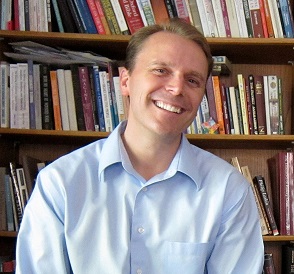
Reverend Nathan C. Walker is the co-editor with Edwin J. Greenlee of Whose God Rules? Is the United States a Secular Nation or a Theolegal Democracy? (Palgrave Macmillan 2011). The book debuted Walker’s theory “theolegal democracy”—an analysis of a political system that permits, rewards, and encourages officials to use theology to make law without formally establishing a state religion. Contributors included Alan Dershowitz, Martha Nussbaum, Kent Greenawalt, and Robert George. Former British Prime Minister Tony Blair wrote the foreword and Cornel West calls Walker’s theory “provocative and pioneering.” Walker previously served as a Resident Fellow at Harvard Divinity School, where he studied legal restrictions on religious expression in public schools. He is currently an advanced doctoral candidate in Law, Education, and Religion at Teachers College Columbia University, where he received his Master of Arts and Master of Education degrees. His dissertation, Unveiling Freedom: Bans on Religious Garb, asks whether public school teachers should leave their religious clothing at the schoolhouse gate. Walker received his Master of Divinity degree in religion and education from Union Theological Seminary and will continue to serve as the Senior Minister of the First Unitarian Church of Philadelphia until the summer of 2014, when he will return to academia full-time.
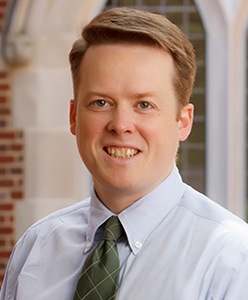
Kevin Walsh, Associate Professor at the University of Richmond School of Law, holds the degrees AB (Dartmouth College 1998), MA (University of Notre Dame 1999), and JD (Harvard Law School 2002). He teaches and writes in the areas of federal jurisdiction and constitutional law. His scholarship focuses on doctrines that define the scope of federal judicial power, and has appeared in the Stanford Law Review, New York University Law Review, and Hastings Constitutional Law Quarterly, among other venues. Prior to joining the Richmond Law faculty in 2009, Professor Walsh was a Visiting Assistant Professor at Villanova University School of Law. He also clerked for Associate Justice Antonin Scalia of the Supreme Court of the United States and for Judge Paul V. Niemeyer of the United States Court of Appeals for the Fourth Circuit.
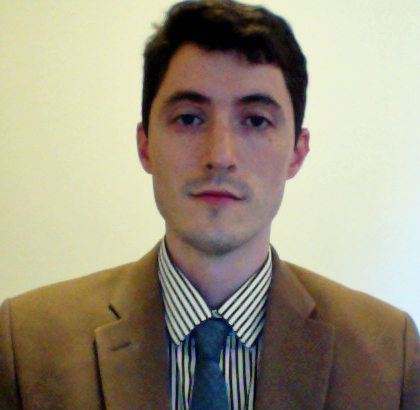
Free Williams is a visiting instructor in ethics at the College of William & Mary and a PhD Candidate at the University of Virginia. He holds a Bachelor of Arts with High Honors from Swarthmore College and a Master of Arts from Vanderbilt University. Free’s research focuses on religious ethics, philosophical ethics, ethics and business, just war theory and religion and law. His dissertation applies historical theories of religion to debates in legal scholarship over what should count as religion in American courts.
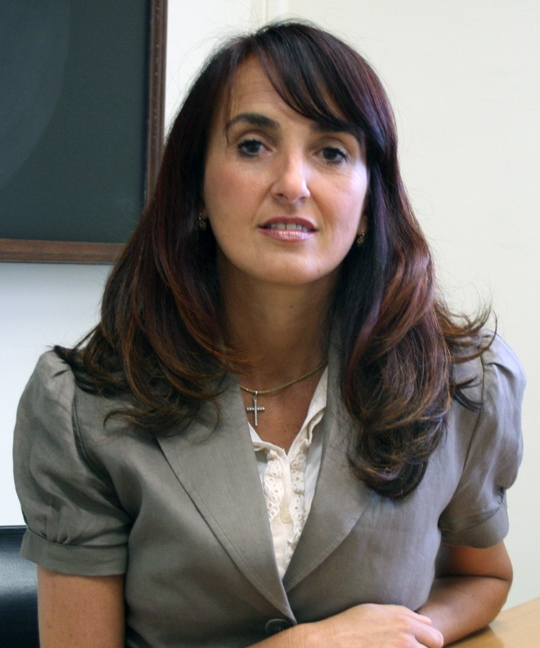
Carmen Asiaín received a Doctor in Law and Social Sciences from the University of the Republic. She is Professor of Law and Religion, Graduate Studies Program, at the University of Montevideo where she was also, until 2012, Associate Professor of Constitutional Law, Faculty of Law. She is at present also Professor of Law and Religion and of Health Law, Graduate Program, Facultad de Teología del Uruguay Monseñor Mariano Soler (The Faculty of Theology of the Uruguay Bishop Mariano Soler), as well as Vice President of the Latin American Consortium for Freedom of Religion and Belief. She has participated as a panelist at conferences on Religious Liberty and Law and Religion at international conferences in Argentina, Brazil, Chile, Colombia, Mexico, USA, Germany, and Uruguay and at the UN and has published papers in Spain, UK, Italy, USA, and Latin America, in Spanish and English, on ecclesiastical law, freedom of conscience, health law, comparative Latin American Religious Rights, and marriage, education, and secularism in relation to religion. Dr. Asiaín is a member of the Judeo-Christian Fellowship and a founding member and vice-president of the Instituto de Derecho Religioso del Estado (IDRE), Uruguay. She is a member of the International Advisory Council, Canon Law and Ecclesiastical Law General Journal, IUSTEL. As an attorney accredited by the National Ecclesiastical Court (Uruguay and Argentina) and a partner at the law firm of Pollak & Brum, she is a litigator in Matrimonial Canon Law. She is an advisor and litigator in cases involving Freedom of Conscience and Religion or Belief against the State.
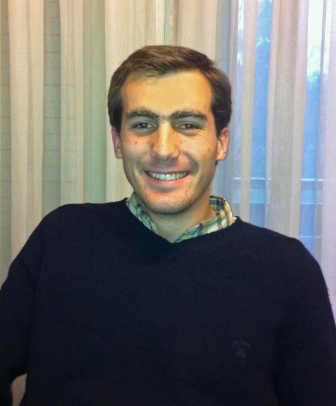
Juan Gutierréz graduated from Universidad de Montevideo Law School with a Doctor or Laws degree in February 2013. Having worked for 14 months at Cámara de la Construcción del Uruguay (Uruguay’s oldest association of construction companies), in May 2013 he moved to work in the Montevideo law firm Jimenez de Aréchaga, Viana & Brause, where focuses in the areas of contracts, banking and finance law, and customs law. He is always seeking opportunities to go deeper into Human Rights, about which he is passionate.
